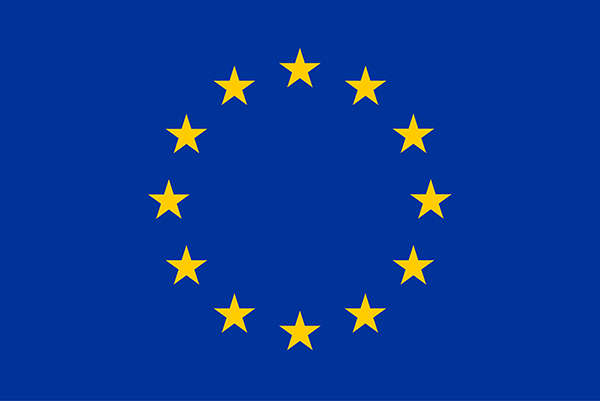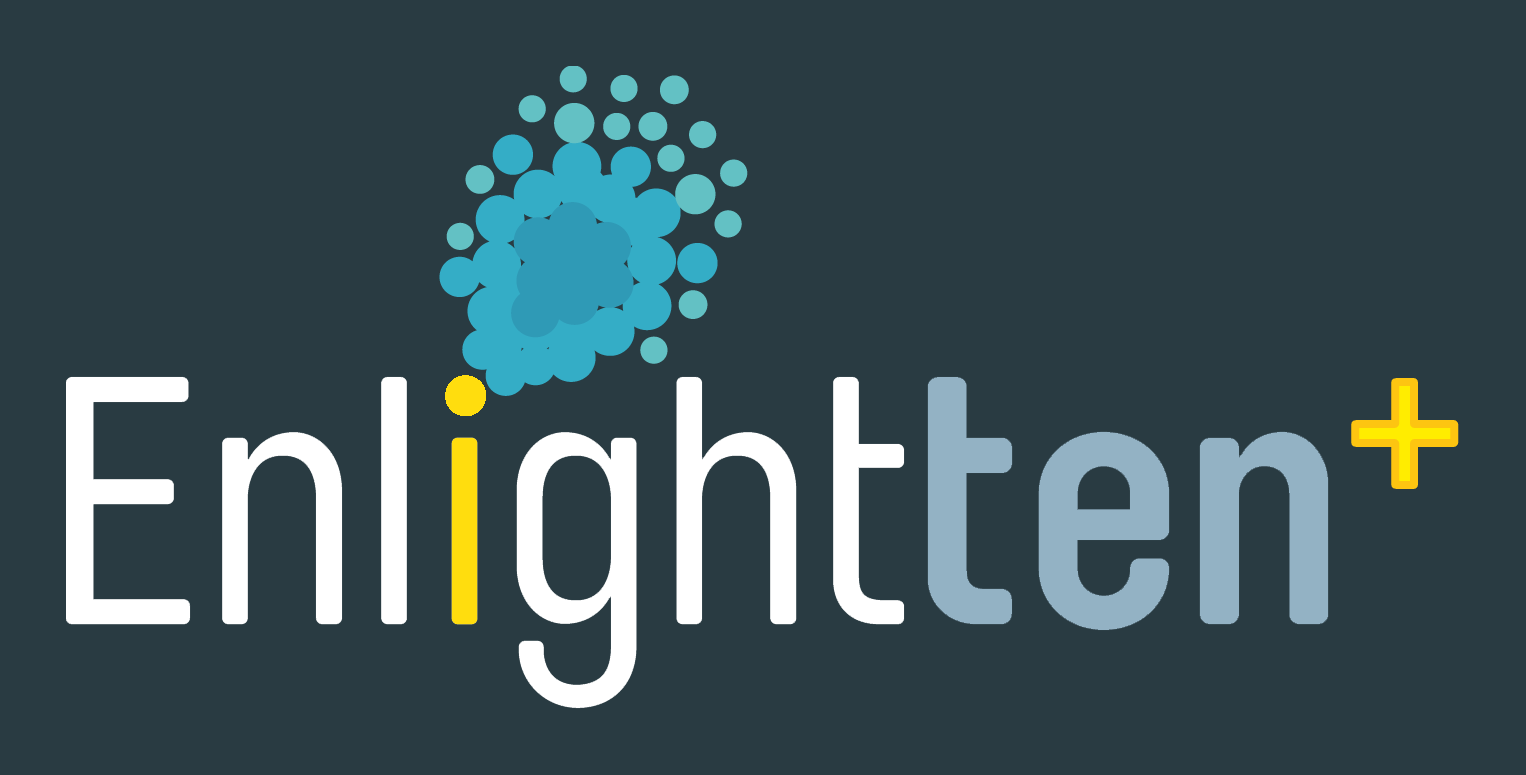Beneficiaries
 | Helmholtz Centre for Infection Research, Braunschweig, Germany |
| Short name: HZI Website: www.helmholtz-hzi.de/en | 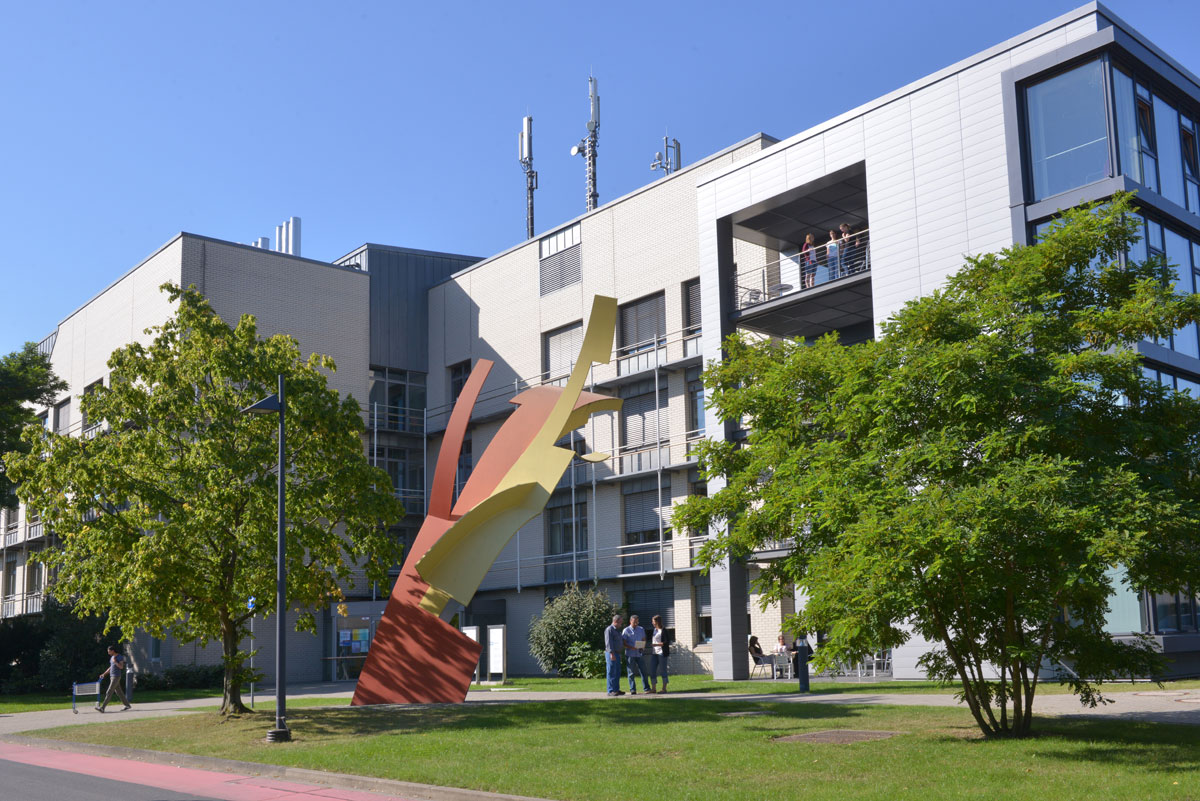 |
The Helmholtz Centre for Infection Research (HZI) is a publicly funded research centre with more than 800 employees in research and administration. The focus of the centre lies on infectious diseases, with the main goal in understanding infection pathways and immune responses to develop novel drugs for efficient therapies and treatments of infections.
| Department: Experimental Immunology E-Mail: jochen.huehn@helmholtz-hzi.de Website Lab: www.helmholtz-hzi.de/exim | 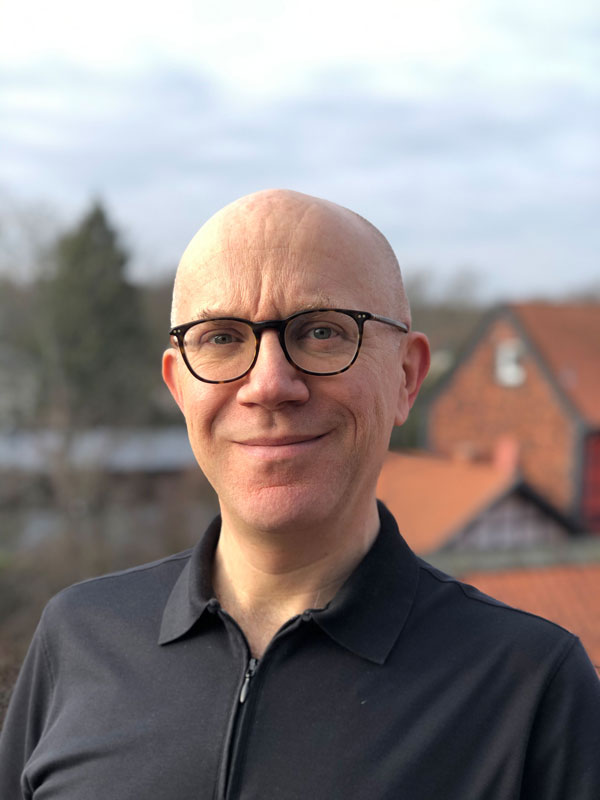 |
 Click for more information
Click for more informationCV
Since 2008: Full Professor for Experimental Immunology (Hannover Medical School) and Head of Department Experimental Immunology (HZI)
2006 – 2008: Junior Professor for Immune Regulation, Charité University Medicine Berlin, Germany
2000 – 2006: Postdoc at Charité University Medicine Berlin, Germany
1996 – 2000: PhD thesis at Bernhard-Nocht-Institute for Tropical Medicine, Hamburg, Germany
1991 – 1996: Undergraduate training in Biochemistry/Molecular Biology, University of Hamburg, Germany
Additional information
Since 2021- Coordinator of EU-funded Innovative Training Network ENLIGHT-TEN+
Since 2018- Steering committee member of Excellence Cluster RESIST
Since 2017- Co-initiator of EFIS Study Group “T cell connect Europe”
2015-2019- Coordinator of EU-funded Innovative Training Network ENLIGHT-TEN
Since 2014- Advisory Board Member of the German Society of Immunology (DGfI)
2013-2020- Deputy Speaker Topic “Immune response & interventions” - Helmholtz Association
Since 2007- Organizer of annual German Meeting on Immune Regulation
2007- Langener Science Award
2007- Wolfgang Schulze Award for Rheumatism Research
2002- Avrion Mitchison-Award for Rheumatism Research
Keywords
- Epigenetic control of immune cell development
- Thymic T cell development & peripheral T cell differentiation
- Foxp3+ regulatory T cells
- Long-lasting consequences of (neonatal) infections and microbial colonization on immune system
Key publications
- Nikolouli E, Elfaki Y, Herppich S, Schelmbauer C, Delacher M, Falk C, Mufazalov IA, Waisman A, Feuerer M, Huehn J. Recirculating IL 1R2+ Tregs fine-tune intrathymic Treg development under inflammatory conditions. Cell Mol Immunol 2020 doi: 10.1038/s41423-019-0352-8.
- Pezoldt J, Pasztoi M, Zou M, Wiechers C, Beckstette M, Thierry GR, Vafadarnejad E, Floess S, Arampatzi P, Buettner M, Schweer J, Fleissner D, Vital M, Pieper DH, Basic M, Dersch P, Strowig T, Hornef M, Bleich A, Bode U, Pabst O, Bajenoff M, Saliba AE, Huehn J. Neonatally imprinted stromal cell subsets induce tolerogenic dendritic cells in mesenteric lymph nodes. Nat Commun 2018; 9:3903.
- Garg G, Nikolouli E, Hardtke-Wolenski M, Toker A, Ohkura N, Beckstette M, Miyao T, Geffers R, Floess S, Gerdes N, Lutgens E, Osterloh A, Hori S, Sakaguchi S, Jaeckel E, Huehn J. Unique properties of thymic antigen-presenting cells promote epigenetic imprinting of alloantigen-specific regulatory T cells. Oncotarget 2017; 8:35542.
- Yang BH, Hagemann S, Mamareli P, Lauer U, Hoffmann U, Beckstette M, Fohse L, Prinz I, Pezoldt J, Suerbaum S, Sparwasser T, Hamann A, Floess S, Huehn J, Lochner M*. Foxp3+ T cells expressing RORgammat represent a stable regulatory T-cell effector lineage with enhanced suppressive capacity during intestinal inflammation. Mucosal Immunol 2016; 9:444.
- Yang BH, Floess S, Hagemann S, Deyneko IV, Groebe L, Pezoldt J, Sparwasser T, Lochner M, Huehn J. Development of a unique epigenetic signature during in vivo Th17 differentiation. Nucleic Acids Res 2015; 43:1537.
| Department: Systems Immunology E-Mail: mmh@theoretical-biology.de Website Lab: www.helmholtz-hzi.de/simm | 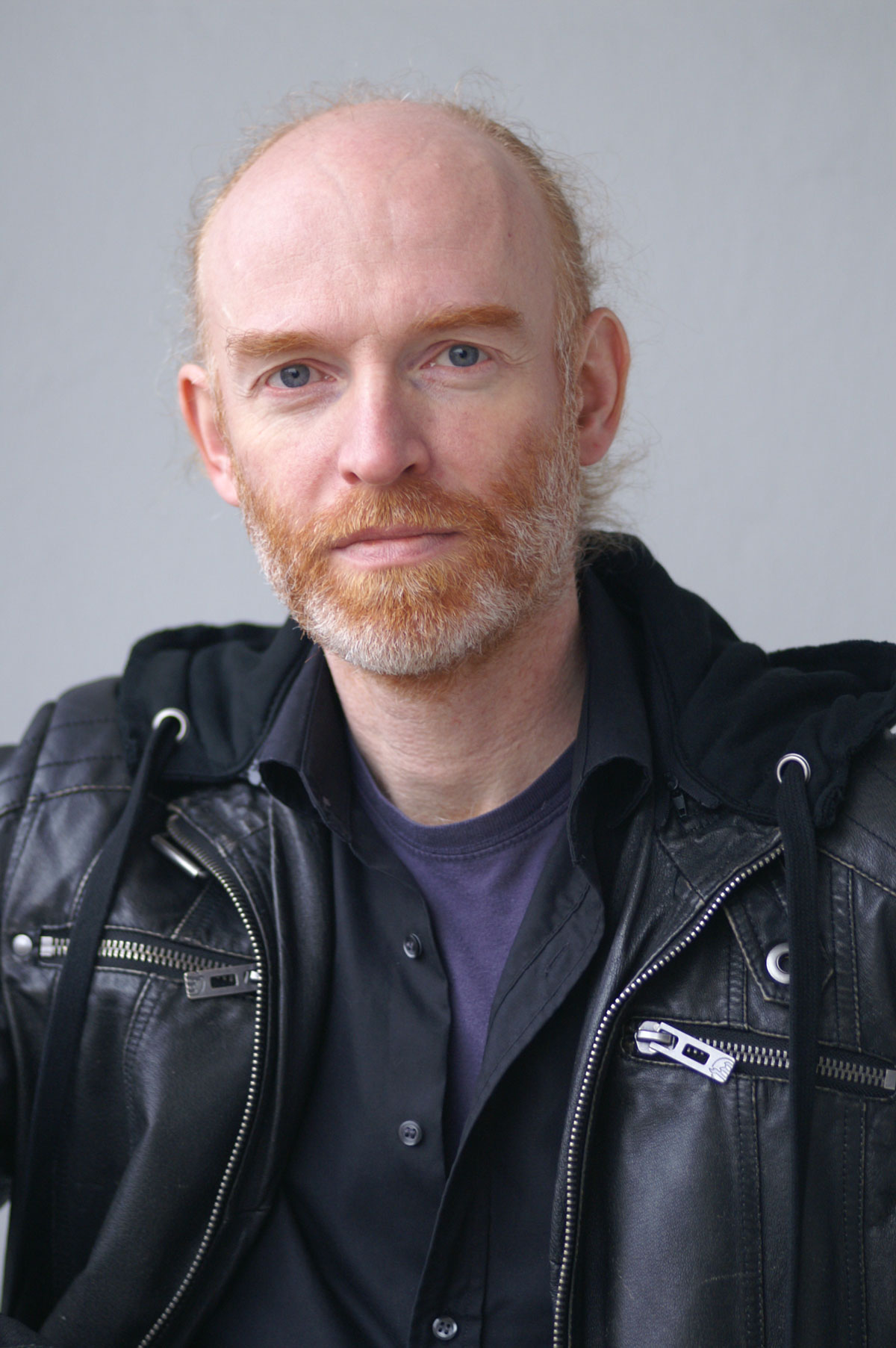 |
 Click for more information
Click for more informationCV
Since 2010: W3-Professor at the Technische Universität Braunschweig, and Head of the Department 'Systems Immunology' at the Helmholtz Centre for Infection Research Braunschweig.
2005-2010: Fellow at the Frankfurt Institute for Advanced Studies (FIAS), Johann Wolfgang Goethe-University, Frankfurt/Main, Germany
2004: Research fellow at the Centre for Mathematical Biology, Mathematical Institute, Oxford University, UK
1998 – 2003: Head and initiator of the Research Group “Theoretical Biophysics” and “Assistant” at the Institute for Theoretical Physics of the Dresden University of Technology, Germany
1994 – 1997: PhD Theoretical Physics at the Goethe-University Frankfurt/Main
1988-1994: Studied Physics, Mathematics, Philosophy at the Goethe-University Frankfurt/Main, and the University Pierre et Marie Curie Paris.
Additional information
Since 2020- Expert commission “Pandemieforschung” (pandemic research) of the German Research Foundation (DFG)
Since 2020 - COVID-19 expert group of the Helmholtz Association
Since 2017- Faculty member and taskforce leader of the Centre for Individualized Infection Medicine (CIIM) Hannover
Since 2017- Scientific advisory board of the Doctoral Training Unit “Next Generation Immuno-Science” (NEXTIMMUNE) Luxembourg
Since 2011- Board of directors of “Braunschweig Integrated Centre of Systems Biology” (BRICS)
2016-2020- Speaker of the scientific association of the HZI
2006- ALTANA-Award for fundamental research in Theoretical Immunology
2004- EU Marie-Curie Fellowship
Keywords
- Germinal center and affinity maturation
- Theoretical immunology
- Infectious disease models
- Neuroinflammation and neurodegenerative diseases
- T cell dynamics
Key publications
- Roco, J.A., Mesin, L., Binder, S.C., Nefzger, C., Gonzalez-Figueroa, P., Canete, P.F., Ellyard, J., Shen, Q., Robert, P.A., Cappello, J., Vohra, H., Zhang, Y., Nowosad, C.R., Schiepers, A., Corcoran, L.M., Toellner, K.-M., Polo, J.M., Meyer-Hermann M., Victora, G.D., Vinuesa, C.G.Class-Switch Recombination Occurs Infrequently in Germinal Centers. Immunity 2019, 51 (2), pp. 337-350.e7.
- Meyer-Hermann M. Injection of antibodies against immunodominant epitopes tunes germinal centers to generate broadly neutralizing antibodies. Cell Reports 2019 Oct 29; 29: 1066-1073
- Tas, J.M.J., Mesin, L., Pasqual, G., Targ, S., Jacobsen, J.T., Mano, Y.M., Chen, C.S., Weill, J.-C., Reynaud, C.-A., Browne, E.P., Meyer-Hermann M., Victora, G.D. Visualizing antibody affinity maturation in germinal centers. Science 2016, 351 (6277), pp. 1048-1054.
- Zhang* Y, Meyer-Hermann* M, George L, Khan M, Figge MT, Falciani F, Kosco-Vilbois M, Toellner K-M. Germinal centre B cells govern their own fate via antibody feedback. J Exp Med 2013 Mar 11; 210(3): 457-464. [*shared first author].
- Meyer-Hermann M, Figge MT, Straub R. Mathematical modeling of the circadian rhythm of key neuroendocrine immune players in rheumatoid arthritis: A systems biology approach, Arthritis & Rheumatism 2009 Sep; 60(9): 2585-2594.
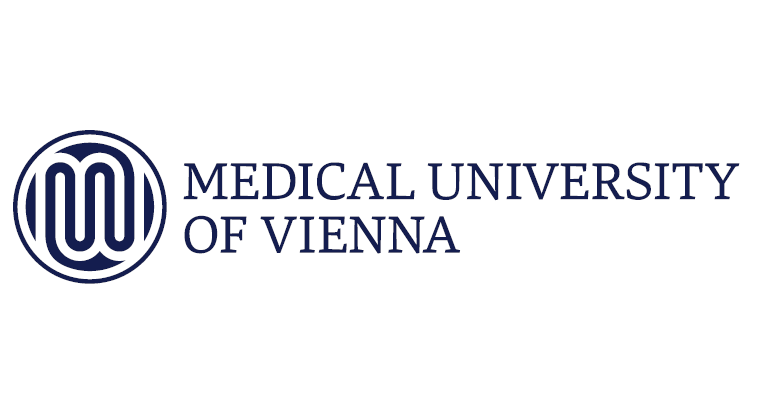 | Medical University of Vienna, Austria |
| Short name: MUW Website: www.meduniwien.ac.at | 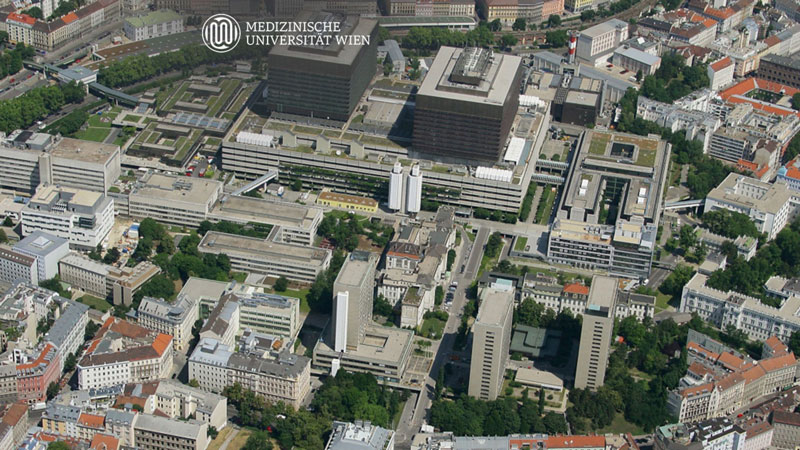 |
The Medical University of Vienna (MUW) is the largest medical organisation in Austria and provides Europe's largest hospital, the AKH in Vienna, with all of its medical staff. It employs a staff of 5,000, of which 1,800 are researchers and 1,600 are medical doctors. As one of the largest research centers in Europe, MUW concentrates on a total of five research clusters (including Immunology) and five clinical research fields.
| Department: Institute of Immunology, Center for Pathophysiology, Infectiology and Immunology E-Mail: wilfried.ellmeier@meduniwien.ac.at Website Lab: www.meduniwien.ac.at/immunologie/ellmeier | 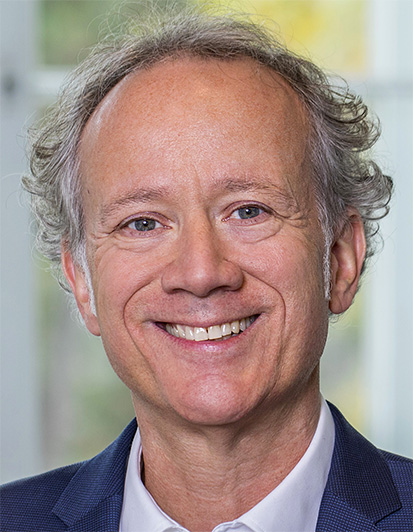 |
 Click for more information
Click for more informationCV
since 07/2008: Full Professor of Immunobiology
2005 - 2007: Associate Professor (a.o.Univ.Prof), Medical University of Vienna
since 2000: Group Leader, Institute of Immunology, University of Vienna
1995 - 1999: Postdoctoral Fellow (Laboratory of Dan Littman), Skirball Institute, Howard Hughes Medical Institute, New York University Medical Center, New York, NY, USA
1990 - 1994: Doctoral studies, University of Vienna, with distinction; PhD Thesis performed at the Institute for Molecular Pathology (IMP) in Vienna
1985 - 1990: Studies in Biochemistry, University of Vienna, with distinction
Additional information
since 10/2020- Head of the Institute of Immunology
since 2020- President of the Biomedical Alliance in Europe
since 2020- Deputy Head of the Center for Pathophysiology, Infectiology and Immunology
since 2019- Speaker and coordinator of the FWF SFB-F70 (Special Research Program)
since 2019- Board member of the Austrian Science Fund (FWF)
since 2014- Academic Editor of FEBS Letters
since 2012- Member of the Austrian Academy of Sciences
since 2008- Program coordinator of MedUni Wien PhD program “Immunology” (it is one of the largest thematic programs)
2005- Novartis prize 2004 in Biology
2001- START Prize of the Austrian Science Fund (most prestigious prize in Austria for young scientist; similar to ERC Starting Grant)
Keywords
- The role of histone deacetylases in the regulation of T cell-mediated immunity
- Transcriptional control of T cell development
- Regulation of peripheral T cell function and maintenance of T cell lineage identity and integrity
Key publications
- Preglej T, Hamminger P, Luu M, Bulat T, Andersen L, Göschl L, Stolz V, Rica R, Sandner L, Waltenberger D, Tschismarov R, Faux T, Boenke T, Laiho A, Elo LL, Sakaguchi S, Steiner G, Decker T, Bohle B, Visekruna A, Bock C, Strobl B, Seiser C, Boucheron N, Ellmeier W (2020). Histone deacetylases 1 and 2 restrain CD4+ cytotoxic T lymphocyte differentiation. JCI Insight 5(4). pii: 133393. doi: 10.1172/jci.insight.133393.
- Andersen L, Gülich AF, Alteneder M, Preglej T, Orola MJ, Dhele N, Stolz V, Schebesta A, Hamminger P, Hladik A, Floess S, Krausgruber T, Faux T, Andrabi SBA, Huehn J, Knapp S, Sparwasser T, Bock C, Laiho A, Elo LL, Rasool O, Lahesmaa R, Sakaguchi S, Ellmeier W (2019). The Transcription Factor MAZR/PATZ1 Regulates the Development of FOXP3+ Regulatory T Cells. Cell Rep. 29(13):4447-4459.e6. doi: 10.1016/j.celrep.2019.11.089
- Ellmeier W & Seiser, C. Histone deacetylase function in CD4+ T cells. Nat Rev Immunol 18, 617-634, doi:10.1038/s41577-018-0037-z (2018).
- Goschl, L, Preglej, T, Hamminger, P, Bonelli, M, Andersen, L, Boucheron, N, Gulich, AF, Muller, L, Saferding, V, Mufazalov, IA, Hirahara, K, Seiser, C, Matthias, P, Penz, T, Schuster, M, Bock, C, Waisman, A, Steiner, G. & Ellmeier W A T cell-specific deletion of HDAC1 protects against experimental autoimmune encephalomyelitis. J Autoimmun 86, 51-61, doi:10.1016/j.jaut.2017.09.008 (2018).
- Boucheron, N, Tschismarov, R, Goschl, L, Moser, Mirjam, Lagger, S, Sakaguchi, S, Winter, Lenz, F, Vitko, D., Breitwieser, FP, Haust, L, Hassan, H, Bennett, KL, Colinge, J, Schreiner, W, Matthias, P, Egawa, T, Taniuchi, I, Matthias, P, Seiser, C & Ellmeier, W* CD4+ T cell lineage integrity is controlled by the histone deacetylases HDAC1 and HDAC2. Nat Immunol 15, 439-448, doi:10.1038/ni.2864 (2014). (*shared senior-authorship).
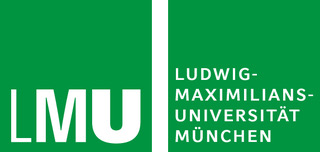 | Ludwig-Maximilians-University, Munich, Germany |
| Short name: LMU Website: www.en.lmu.de |  |
LMU Munich offers a broad research and teaching portfolio, ranging from humanities and cultural studies, law, economics and social sciences to medicine and natural sciences. Around 50.000 Students are enrolled at the LMU, and together with the neighboring Technical University and the Max-Planck- and Helmholtz-Institutes, LMU represents a major European science hub. Klein is affiliated with the Biomedical Center (BMC), one of the largest research institutions built in Germany in recent years. The BMC provides laboratories and teaching space for around 60 research groups with approximately 450 employees. Combining preclinical, clinical-theoretical and clinical institutes, BMC research is committed to bridging the divide between basic research and clinical application.
| Department: Institute for Immunology E-Mail: ludger.klein@med.lmu.de Website Lab: www.immunologie.med.uni-muenchen.de/research/ag_klein | 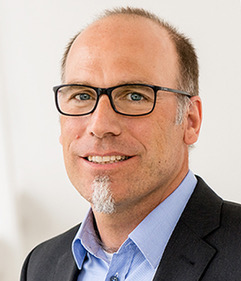 |
 Click for more information
Click for more informationCV
Since 2007: Professor of Cellular Immunology
2002 – 2007: Group Leader, Research Institute of Molecular Pathology (IMP), Vienna, Austria
1999 – 2002: Postdoc at Harvard Medical School, Boston, USA
1997 – 1999: Postdoc at the German Cancer Research Center (DKFZ), Heidelberg
1994 – 1997: PhD studies, German Cancer Research Center (DKFZ), Heidelberg, and University of Cologne, Germany
Additional information
2016- ERC Advanced Grant ‘Tolerance Footprint’
Since 2015- Co-organizer of the Midwinter Conference ‘Advances in Immunobiology’
Since 2013- Coordinator of the Integrated Research Training Group (IRTG) CRC1054
Keywords
- Characterization of the T cell repertoire
- Central and peripheral T cell tolerance
- Clonal deletion and induction of Foxp3+ regulatory T cells
- Functional specialization of thymic stromal cells for T cell repertoire selection
Key publications
- Hassler T, Urmann E, Teschner S, Federle C, Dileepan T, Schober K, Jenkins MK, Busch DH, Hinterberger M and Klein L. Inventories of naive and tolerant mouse CD4 T cell repertoires reveal a hierarchy of deleted and diverted T cell receptors. Proc Natl Acad Sci 2019; 116:18537.
- Yamano T, Dobes J, Voboril M, Steinert M, Brabec T, Ziętara N, Dobesova M, Ohnmacht C, Laan M, Peterson P, Benes V, Sedlacek R, Hanayama R, Kolar M, Klein L* and Filipp D*. Aire expressing ILC3-like cells in the lymph node display potent APC features. J Exp Med; 216:1027.
- Klein L, Robey EA and Hsieh CS. Central CD4+ T cell tolerance: deletion versus regulatory T cell differentiation. Nat Rev Immunol 2019; 19:7.
- Yamano T, Nedjic J, Hinterberger M, Steinert M, Koser S, Pinto S, Gerdes N, Lutgens E, Ishimaru N, Busslinger M, Brors B, Kyewski B and Klein L. Thymic B cells are licensed to present self-antigens for central T cell tolerance induction. Immunity 2015; 42:1048.
- Klein L, Kyewski B, Allen PM and Hogquist KA. Positive and negative selection of the T cell repertoire: what thymocytes see (and don’t see). Nat Rev Immunoly 2014; 14:377.
 | Instituto de Medicina Molecular, João Lobo Antunes, Lisbon, Portugal |
| Short name: iMM Website: imm.medicina.ulisboa.pt | 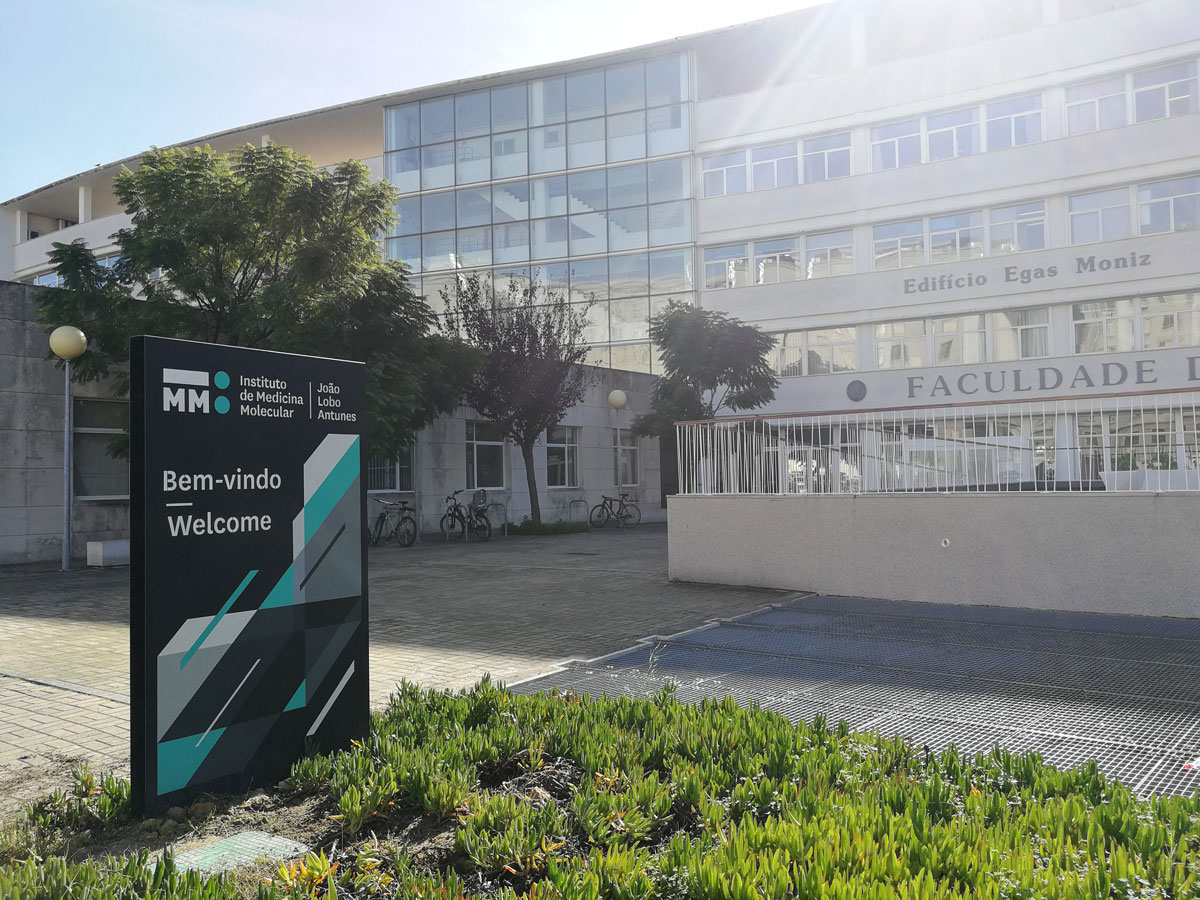 |
The Instituto de Medicina Molecular João Lobo Antunes (iMM) is a leading Portuguese private non-profit research institute that promotes basic, translational and clinical biomedical research with the aim of better understanding disease mechanisms, developing new diagnostic or predictive tests as well as new therapies. iMM currently gathers about 600 researchers and 125 technical and administrative collaborators. iMM’s 34 research groups are organized in 4 Research Lines: Cellular and Developmental Biology; Immunology and infection; Oncobiology; and Neurosciences. The diversity of outstanding researchers creates a bright and dynamic work environment and provides an optimal framework for career development.
| Department: Immune Regulation E-Mail: marc.veldhoen@medicina.ulisboa.pt Website Lab: imm.medicina.ulisboa.pt/investigation/laboratories/marc-veldhoen-lab | 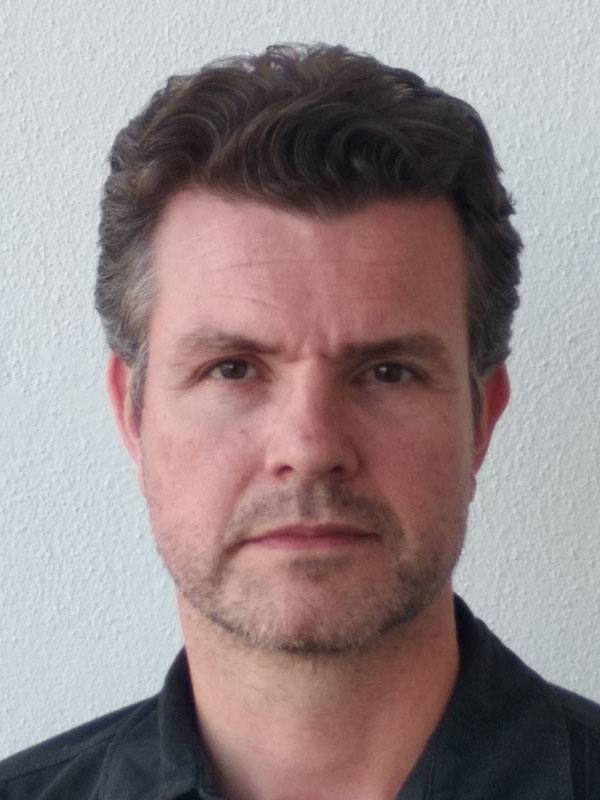 |
 Click for more information
Click for more informationCV
Since 2018: Professor of Basic Immunology, Faculty of Medicine, University of Lisbon
Since 2016: Group Leader, Instituto de Medicina Molecular João Lobo Antunes
2014-2016: Group Leader (tenured) Babraham Institute, Cambridge, UK
2010-2014: Group Leader (tenure track), Babraham Institute, Cambridge, UK
2006-2010: Senior Investigator, National Institute for Medical Research, London, UK
2003-2006: Postdoc, National Institute for Medical Research, London, UK
2000-2003: PhD thesis, National Institute for Medical Research, London, UK
1994-1999: Undergraduate training, Medical Biology, Utrecht University, NL
Additional information
2018- La Caixa Health Research Grant awardee
Since 2017- Co-initiator of EFIS Study Group “T cell connect Europe”
2016-2021- European Research Area Chair
Since 2016- Editorial board member, International Immunology
Since 2016- Editorial board member, Journal of European Immunology
Since 2013- Editor-in-Chief, Immunity, Inflammation and Disease
2010- EMBO Young investigator award
2010- ERC Consolidator award
2000- Boehringer Ingelheim Funds Grantee
Keywords
- T cell differentiation
- T cell metabolism
- Tissue resident T cells
- Intraepithelial T cells
Key publications
- Ferreira, C., Barros, L., Baptista, M., Blankenhaus, B., Barros, A., Figueiredo-Campos, P., Konjar, S., Laine, A., Kamenjarin, N., Stojanovic, A., et al. (2020). Type 1 Treg cells promote the generation of CD8+ tissue-resident memory T cells. Nat Immunol 21, 766-776
- Konjar, S., Frising, U.C., Ferreira, C., Hinterleitner, R., Mayassi, T., Zhang, Q., Blankenhaus, B., Haberman, N., Loo, Y., Guedes, J., et al. (2018). Mitochondria maintain controlled activation state of epithelial-resident T lymphocytes. Sci Immunol 3, eaan2543.
- Li, Y., Innocentin, S., Withers, D.R., Roberts, N.A., Gallagher, A.R., Grigorieva, E.F., Wilhelm, C., and Veldhoen M. (2011). Exogenous stimuli maintain intraepithelial lymphocytes via aryl hydrocarbon receptor activation. Cell 147, 629-640.
- Brucklacher-Waldert, V., Ferreira, C., Stebegg, M., Fesneau, O., Innocentin, S., Marie, J.C., and Veldhoen M. (2017). Cellular Stress in the Context of an Inflammatory Environment Supports TGF-beta-Independent T Helper-17 Differentiation. Cell Rep 19, 2357-2370.
- Brucklacher-Waldert, V., Ferreira, C., Innocentin, S., Kamdar, S., Withers, D.R., Kullberg, M.C., and Veldhoen M. (2016). Tbet or Continued RORgammat Expression Is Not Required for Th17-Associated Immunopathology. J Immunol 196, 4893-4904.
| Department: Lymphocyte Regulation E-Mail: lgraca@medicina.ulisboa.pt Website Lab: imm.medicina.ulisboa.pt/investigation/laboratories/luis-graca-lab/ | 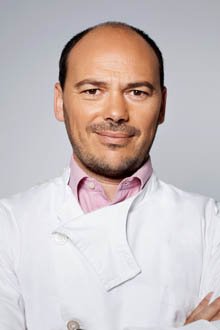 |
 Click for more information
Click for more informationCV
Since 2019: Full Professor of Immunology, Faculty of Medicine, University of Lisbon
Since 2005: Group Leader, Instituto de Medicina Molecular João Lobo Antunes
2005-2019: Assistant/Associate Professor, Faculty of Medicine, University of Lisbon
2004-2005: Postdoc, University of Western Australia, Perth, Australia
2002-2004: Postdoc, University of Oxford, Oxford, UK
1998-2002: PhD thesis, University of Oxford, Oxford, UK
Additional information
Since 2017- President – Lisbon Medical Sciences Society
2015-2018- President – Portuguese Society for Immunology
2019- Univ. Lisbon Caica Geral Depositos, Research Excellence Award
Since 2017- Member of the Scientific Council, Faculty of Medicine, University of Lisbon.
Keywords
- Germinal centre egulation
- TFH cells
- Regulatory T cells
- Immune tolerance
- Autoimmunity
- Clinical studies
Key publications
- Fonseca VR, Agua-Doce A, Maceiras AR, Pierson W, Ribeiro F, Romão VC, Pires AR, Silva SL, Fonseca JE, Sousa AE, Linterman MA, Graca L (2017) Human blood CXCR5+Foxp3+ T cells are indicators of ongoing humoral activity not fully licensed with suppressive function. Science Immunol. 2, eaan1487
- Fonseca VR, Romão VC, Agua-Doce A, Santos M, López-Presa D, Ferreiras AC, Fonseca JE, Graca L (2018) “The Ratio of Blood T Follicular Regulatory Cells to T Follicular Helper Cells Marks Ectopic Lymphoid Structure Formation While Activated Follicular Helper T Cells Indicate Disease Activity in Primary Sjögren's Syndrome”. Arthritis Rheumatol. 70:774-784.
- Maceiras R, Almeida SCP, Mariotti-Ferrandiz E, Chaara W, Jebbawi F, Six A, Hori S, Klatzmann D, Faro J, Graca L (2017) T follicular helper and T follicular regulatory cells from the same germinal centers have different TCR-specificity. Nature Commun. 8:15067.
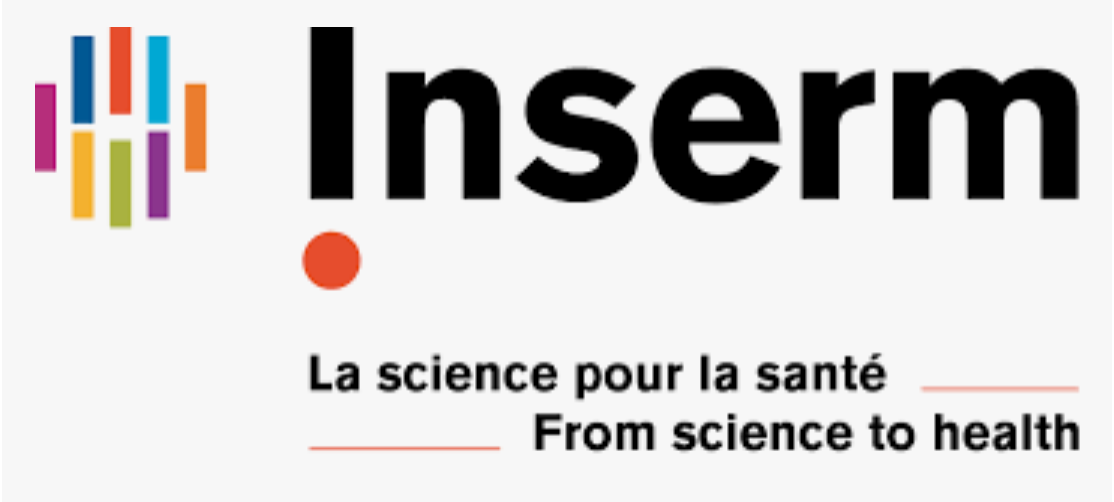 | Institut National de la Santé et de la Recherche Médicale, Paris, France |
| Short name: INSERM Website: www.inserm.fr |  |
INSERM is an internationally recognized French national public research institute that is dedicated to the study of biological science and medicine with more than 8,000 employees. The research will be performed at the Center of Immunology and Microbial Infection (CIMI) Institute that is part of INSERM and Sorbonne University. The PhD student will be registered at Sorbonne University. CIMI is located at La Pitie-Salpetriere Hospital in Paris and is dedicated to the study of immune responses in inflammatory and infectious diseases and to find new treatments of these pathologies.
| Department: CIMI E-Mail: benoit.salomon@upmc.fr Website Lab: www.cimi-paris.upmc.fr/fr/les-equipes/biologie-des-lymphocytes-t-regulateurs-et-implications-therapeutiques/membres-de-l-equipe.html | 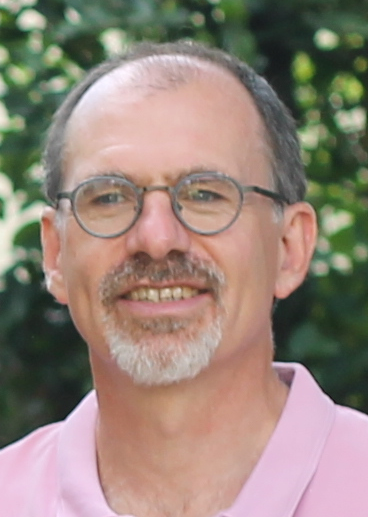 |
 Click for more information
Click for more informationCV
Since 2007: Research Director (DR2 Inserm). Group leader at INSERM and Sorbonne University.
2000-2007: : Research associate (CR1 Inserm). Principal investigator at INSERM and Sorbonne University.
1997-2000: : Postdoctoral fellow at the University of Chicago (group of Jeffrey Bluestone).
1992-1996: : PhD student at the University of Paris (group of David Klatzmann).
Additional information
2021- Organizer of the Health Bioscience Research Industry Days (Hybrid) meeting, France.
2014-2018- Co-director of the CIMI Institute.
2013-2016- Member of the board of directors of the French Society of Immunology (SFI)
2015- 'Coups d’élan pour la Recherche Française' award of the Bettencourt Schueller Foundation.
2011- Organizer of the Symposium on «Regulatory T cells: from basic research to therapeutic applications», France.
Keywords
- Foxp3+ regulatory T cells (Tregs) in mice
- Development and biology of tissue-Tregs
- Immunometabolism in Tregs
- Role of Tregs in auto-immune diseases and cancer
- Biotherapy targeting Tregs in auto-immune diseases and cancer
Key publications
- Zaragoza B, Chen X, Oppenheim JJ, Baeyens A, Gregoire S, Chader D, Gorochov G, Miyara M and Salomon BL. Suppressive activity of human Treg cells is maintained in the presence of TNF. Nat Med. 2016. 22:16-17.
- Grégoire S, Terrada C, Martin GH, Fourcade G, Baeyens A, Marodon G, Fisson S, Billiard F, Lucas B, Tadayoni R, Béhar-Cohen F, Levacher B, Galy A, LeHoang P, Klatzmann D, Bodaghi B, Salomon BL. Treatment of Uveitis by In Situ Administration of Ex Vivo-Activated Polyclonal Regulatory T Cells. J Immunol. 2016. 196:2109-2118.
- Ronin E, Lubrano di Ricco M, Vallion R, Divoux J, Kwon HK, Grégoire S, Collares D, Rouers A, Baud V, Benoist C, Salomon BL. The NF-κB RelA Transcription Factor Is Critical for Regulatory T Cell Activation and Stability. Front Immunol. 2019. 10:2487. doi: 10.3389/fimmu.2019.02487
- Lubrano di Ricco M, Ronin E, Collares D, Divoux J, Grégoire S, Wajant H, Gomes T, Grinberg-Bleyer Y, Baud V, Marodon G, Salomon BL. Tumor necrosis factor receptor family costimulation increases regulatory T-cell activation and function via NF-κB. Eur J Immunol. 2020. 50:972-985.
- Vallion R, Divoux J, Glauzy S, Ronin E, Lombardi Y, Lubrano di Ricco M, Grégoire S, Nemazanyy I, Durand A, Fradin D, Lucas B and Salomon BL. Regulatory T cell stability and migration are dependent on mTOR. J Immunol. 2020. 205:1799-1809.
 | University College London, UK |
| Short name: UCL Website: www.ucl.ac.uk/immunity-transplantation |  |
UCL was rated the top University in the UK for research strength in the most recent Research Assessment Framework. Work in the UCL Institute of Immunity and Transplantation focuses on understanding the mechanisms underlying immune-mediated diseases with the aim of providing new treatments and an outstanding research training environment.
| Department: UCL Institute of Immunity and Transplantation E-Mail: lucy.walker@ucl.ac.uk Website Lab: www.lucywalkerlab.com | 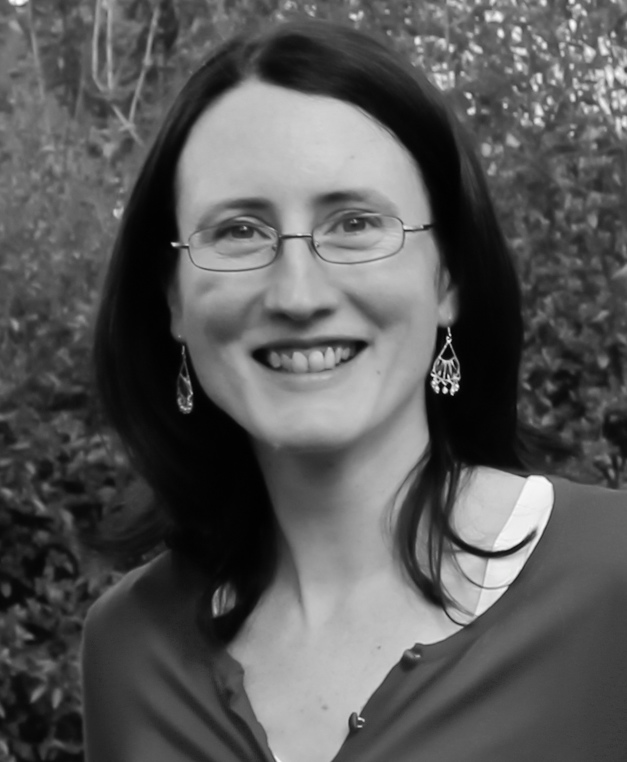 |
 Click for more information
Click for more informationCV
Since 2013: Professor of Immune Regulation, University College London
2009 – 2012: MRC Senior Non Clinical Research Fellow, Division of Immunity & Infection, University of Birmingham (Reader)
2004 – 2008: MRC Career Development Fellow, Division of Immunity & Infection, University of Birmingham (Senior Lecturer)
2000 – 2003: Wellcome Trust International Prize Travelling Fellow, University of California San Francisco, USA (Prof. Abul Abbas)
1997 – 2000: Postdoctoral Fellow, University of Birmingham (Prof. Peter Lane)
1994 – 1997: PhD in Immunology, Wellcome Trust Prize Studentship, University of Bath (UK)
Additional information
Chair, British Society for Immunology Autoimmunity Affinity Group
Member, Wellcome Trust Expert Review Group 4 (2016-present)
Co-ordination Board for EFIS Study Group “T cell connect Europe”
Chief Investigator, NIHR portfolio-adopted study “Immune Regulation in Autoimmunity”
Chief Investigator, “Phenotyping of blood samples to detect Autoimmune Signatures following Ipilimumab and Nivolumab Immunotherapy”
EFIS Lecture Award (2016)
Editorial Boards (Clinical and Experimental Immunology, Journal of Molecular Medicine)
Mentor, Royal Society Mentoring Scheme
Royal Society Wolfson Research Merit Award (2015)
Keywords
- Immune tolerance mechanisms and regulation of autoimmunity
- Regulatory T cell function, particularly the CTLA-4 checkpoint
- CD4 T cell differentiation in autoimmunity
- High dimensional immunophenotyping of patient samples
Key publications
- Edner N.M., Heuts F., Thomas N., Wang C.J., Petersone L., Kenefeck R., Kogimtzis, A., Ovcinnikovs, V., Ross, E.M., Ntavli E., Eichmann M., Baptista R., Ambery P., Jermutus L., Peakman M., Rosenthal, M., and Walker LS Follicular helper T cell profiles predict response to costimulation blockade in type 1 diabetes. Nature Immunology (2020) 21:1244-1255
- Edner N.M., Carlesso, J., Rush, J., and Walker LS Targeting costimulatory molecules in autoimmune disease. Nature Reviews Drug Discovery (2020) 19:860-883
- Ovcinnikovs V, Ross EM, Petersone L, Edner NM, Heuts F, Ntavli E, Kogimtzis A, Kennedy A, Wang CJ, Bennett CL, Sansom DM, Walker LS CTLA-4-mediated transendocytosis of costimulatory molecules primarily targets migratory dendritic cells. Science Immunology (2019) May 31;4(35).
- Wang, C., Heuts, F., Ovcinnikovs, V., Wardzinski, L., Bowers, C., Schmidt, E. M., Kogimtzis, A., Kenefeck, R., Sansom, D. M., and Walker LS CTLA-4 controls follicular helper T cell differentiation by regulating the strength of CD28 engagement. Proc Natl Acad Sci U S A (2015) 112(2):524-9
- Kenefeck, R., Wang, C. J., Kapadi, T., Wardzinski, L., Attridge, K., Clough, L. E., Heuts, F., Kogimtzis, A., Patel, S., Rosenthal, M., Ono, M., Sansom, D. M., Narendran, P., and Walker LS Follicular helper T cell signature in type 1 diabetes. Journal of Clinical Investigation(2015) 125, 292-303
 | Bayer AG, Pharmaceuticals, Wuppertal, Germany |
| Short name: Bayer Website: www.bayer.com | 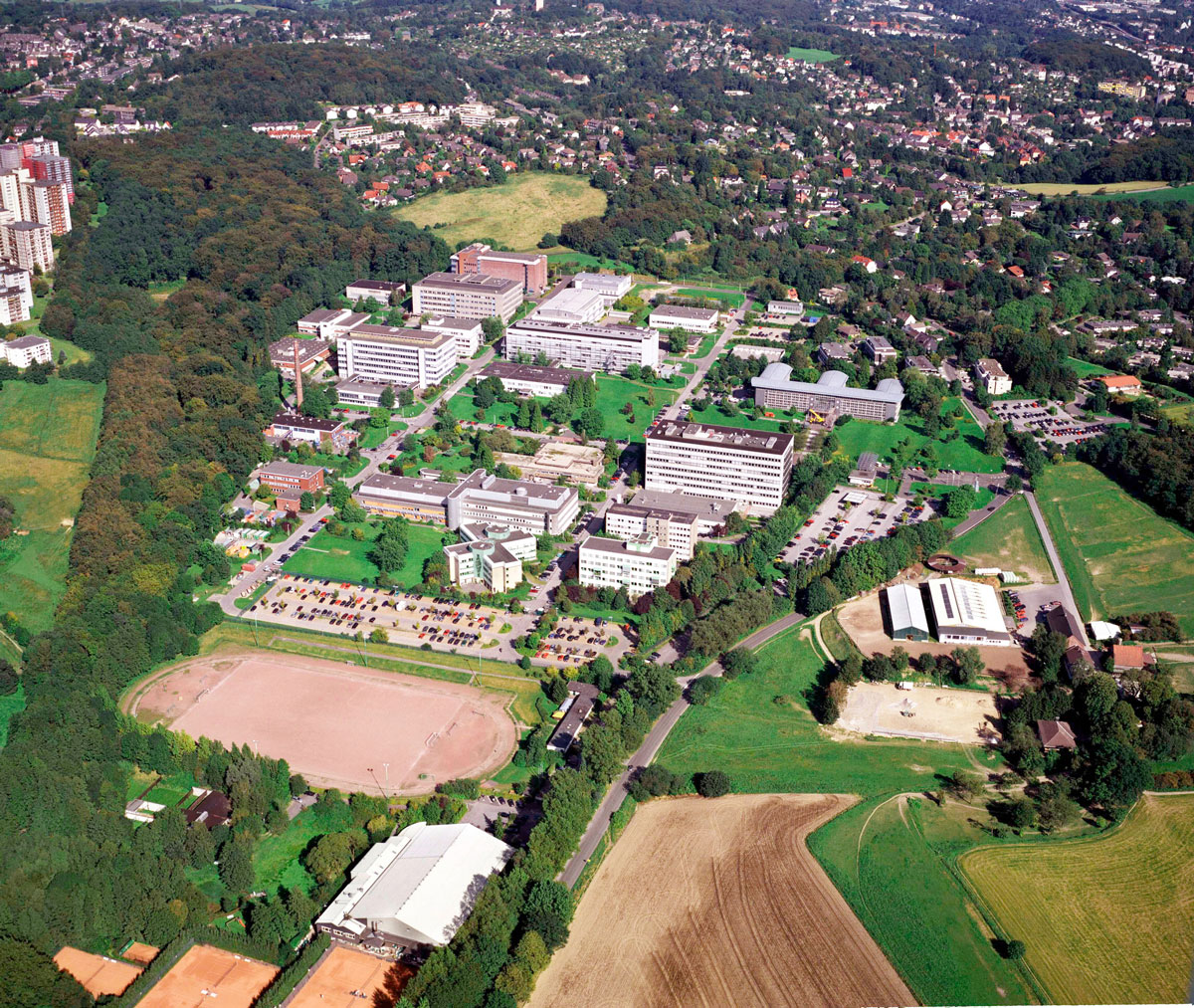 |
Bayer’s division Pharmaceuticals focuses on indications with high medical need in the areas of cardiovascular disease, oncology, gynecology, ophthalmology and hematology. The participating site is located at pharma research center in Wuppertal, Germany, which has 1300 employees. The Investigational Toxicology/ Immunotoxicology especially of oncology indications is an expanding task requiring strong cooperations within the organisation with research and development units.
| Department: Immunotoxicology E-Mail: pascale.buchmann@bayer.com Website Lab: www.bayer.com | 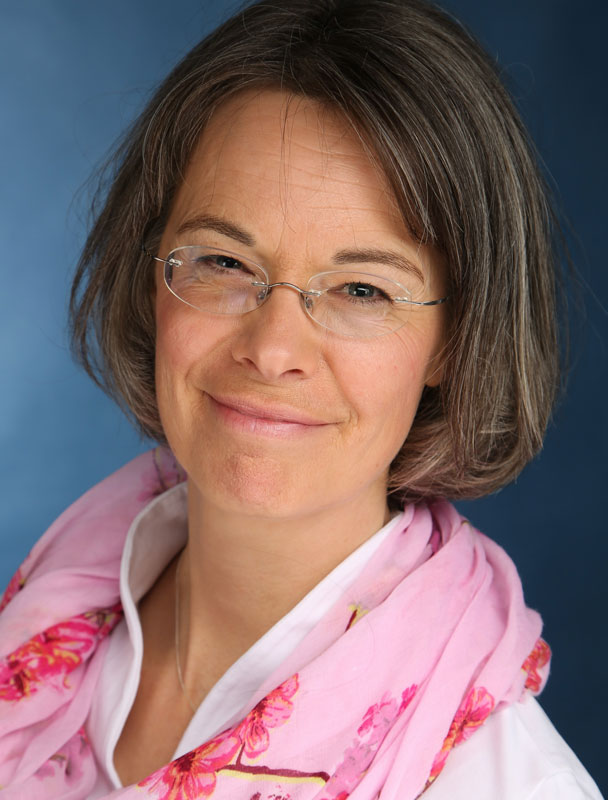 |
 Click for more information
Click for more informationCV
Since 2015: Head of Immunotoxicology, Pharmaceuticals, Bayer AG, Wuppertal, Germany
2002 – 2015: Head of Immunology, Rhein Biotech GmbH / Dynavax Europe, Düsseldorf, Germany
2000 – 2002: Postdoc at German Cancer Research Center, Institute for Molecular Immunology, Heidelberg, Germany
1996 – 2000: PhD thesis at German Cancer Research Center, Heidelberg, Germany
1990 – 1996: Undergraduate training in Biology/ Molecular Biology/ Immunology, University of Kiel, University of Hannover, Medical University Hannover - Germany and Northeastern University, Boston, MA - US
Additional information
Since 2020- Initiating sponsor NC3R CRACK IT Challenge In vitro TDAR
Since 2018- Member Hesi Immunotoxicology Technical Committee
2015-2018- IMI Abirisk program, Bayer project coordinator
Since 2015- Practical course / Lecturer University Düsseldorf for Toxicology Master classes
Keywords
- Activities for therapeutic areas cardiology, gynecology, hematology as well as oncology research and development within the company’s pharmaceuticals division accompanying drug candidate analysis, optimization and (immuno-) toxicological evaluation from research to first in man clinical trials.
Key publications
- Kirchhoff D, Stelte-Ludwig B, Lerchen HG, Wengner AM, Ahsen OV, Buchmann P, Märsch S, Mahlert C, Greven S, Dietz L, Erkelenz M, Zierz R, Johanssen S, Mumberg D, Sommer A. IL3RA-Targeting Antibody-Drug Conjugate BAY-943 with a Kinesin Spindle Protein Inhibitor Payload Shows Efficacy in Preclinical Models of Hematologic Malignancies. Cancers (Basel). 2020 Nov 20;12(11):3464. doi: 10.3390/cancers12113464.
- Morgan H, Tseng SY, Gallais Y, Leineweber M, Buchmann P, Riccardi S, Nabhan M, Lo J, Gani Z, Szely N, Zhu CS, Yang M, Kiessling A, Vohr HW, Pallardy M, Aswad F, Turbica I. Evaluation of in vitro Assays to Assess the Modulation of Dendritic Cells Functions by Therapeutic Antibodies and Aggregates. Front Immunol. 2019. doi: 10.3389/fimmu.2019.00601.
- Buchmann P, Dembek C, Kuklick L, Jäger C, Tedjokusumo R, von Freyend MJ, Drebber U, Janowicz Z, Melber K, Protzer U. A novel therapeutic hepatitis B vaccine induces cellular and humoral immune responses and breaks tolerance in hepatitis B virus (HBV) transgenic mice. Vaccine. 2013 Feb 6;31(8):1197-203. doi: 10.1016/j.vaccine.2012.12.074.
- Campbell JD, Buchmann P, Kesting S, Cunningham CR, Coffman RL, Hessel EM. Allergen-specific T cell responses to immunotherapy monitored by CD154 and intracellular cytokine expression. Clin Exp Allergy. 2010 Jul;40(7):1025-35. doi: 10.1111/j.1365-2222.2010.03505.x.
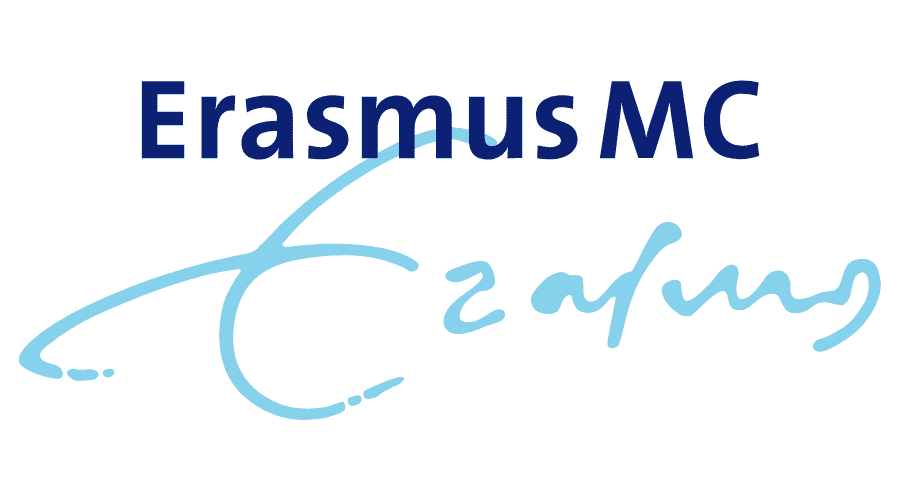 | Erasmus University Medical Center, Rotterdam, The Netherlands |
| Short name: ERASM Website: www.erasmusmc.nl/en | 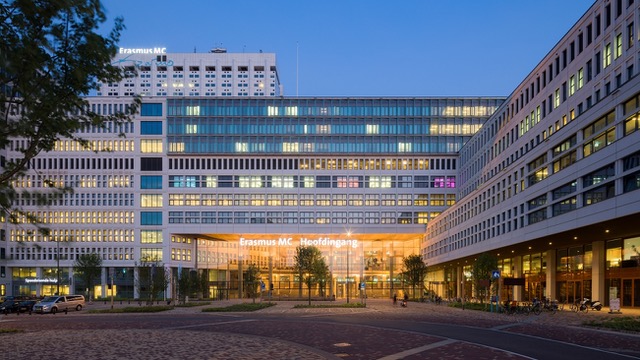 |
The ErasmusMC is the largest university medical center in the Netherlands, and a top referral hospital for a region of about 5 million inhabitants. Through its unique infrastructure bringing multidisciplinary research and healthcare together at one location, the ErasmusMC excels in fundamental and translational research. The Samsom laboratory is focused on identifying immune regulatory processes that are pivotal to intestinal homeostasis. We have unique expertise in human intestinal disease and murine models for gastrointestinal inflammation in which combined differential gene expression, in vitro cell-biology and in vivo cell-tracking are used to identify pathways that regulate mucosal tolerance.
| Department: Laboratory of Pediatrics, division Gastroenterology and Nutrition E-Mail: j.samsom@erasmusmc.nl Website Lab: lab4childhealthrotterdam.nl/ | 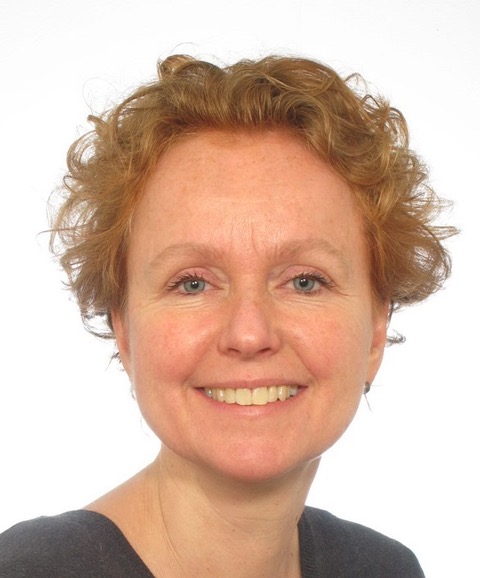 |
 Click for more information
Click for more informationCV
Since 2013: Associate Professor, Head of the Laboratory of Pediatrics (+/- 40fte) ErasmusMC, Rotterdam. The lab unites the divisions Pediatric Infectious diseases and Pediatric Gastroenterology and Nutrition
Since 2009: Head of the div. Gastroenterology and Nutrition of the laboratory of Pediatrics. ErasmusMC, Rotterdam
2005-2009: Assistant Professor Lab. of Pediatrics, div. Gastroenterology and Nutrition, ErasmusMC, Rotterdam
2003-2005: Assistant Professor Dept. of Molecular Cell biology and Immunology, VU-Medical Center, Amsterdam
2002-2003: Senior researcher Dept. of Molecular Cell biology and Immunology, VU-Medical Center Amsterdam
1998-2002: Postdoc at Dept. of Molecular Cell biology and Immunology, VU-Medical Center, Amsterdam
1997-1998: Postdoc at the Dept. of mammalian Virology, institute for animal science and health, Lelystad
1991-1996: PhD thesis department of Immunology and Infectious diseases Leiden University Medical Center, Leiden
Additional information
Since 2019- Principal Investigator and coordinator of the TIMID consortium (https://timid.eu/)
Since 2015- Work package leader in the H2020 consortium PIBD-SETQuality: “Pediatric Inflammatory Bowel Diseases Network for Safety, Efficacy, Treatment and Quality improvement of care”
Since 2019- Board Member of the Dutch Society of Immunology (NVVI)
Since 2004- Dutch representative on steering council of the European mucosal Immunology group (EMIG)
2016-2018- President of the Local Organizing committee 5th European Congress of Immunology, Sept 2018, Amsterdam, The Netherlands
2016- Chair of the Dutch program committee for the joint congress of the Dutch and British societies for immunology, December 2016, Liverpool, UK
2013-2018- President of the program committee of the Dutch Society for Immunology annual NVVI Wintermeeting.
2005-2012- President (2009-2012), Secretary (2005-2009) of the program committee of the Dutch Society for Immunology annual Lunteren meeting for young scientists.
Keywords
- CD4 Thelper cell responses
- Intestinal immune regulation
- Inflammatory Bowel Disease
- Celiac disease
- Interleukin-10 regulation
Key publications
- Veenbergen S, Li P, Raatgeep HC, Lindenbergh-Kortleve DJ, Simons-Oosterhuis Y, Farrel A, Costes LMM, Joosse ME, van Berkel LA, ….de Ridder L, Driessen GJ, Escher JC, Leonard WJ, Samsom JN. IL-10 signaling in dendritic cells controls IL-1β-mediated IFNγ secretion by human CD4+ T cells: relevance to inflammatory bowel disease. Mucosal Immunol. 2019 Aug 15.
- Costes LMM, Lindenbergh-Kortleve DJ, van Berkel LA, Cupedo T, Samsom JN. IL-10 signaling prevents gluten-dependent intraepithelial CD4+ cytotoxic T lymphocyte infiltration and epithelial damage in the small intestine. Mucosal Immunol. 2019 Mar;12(2):479-490.
- Joosse ME, Menckeberg CL, de Ruiter LF, de Ridder L, Escher JC, Veenbergen S, Samsom JN. Frequencies of circulating regulatory TIGIT+CD38+ effector T cells correlate with the course of inflammatory bowel disease. Mucosal Immunol. 2019 Jan;12(1):154-163.
- Joosse ME, Nederlof I., Walker LSK., Samsom JN. Tipping the balance: inhibitory checkpoints in intestinal homeostasis. Review. Mucosal Immunol 2019 Jan;12(1):21-35.
- Bouziat R, Hinterleitner R, Brown JJ, ….Costes LMM, Samsom JN, Xavier RJ, Ng A, Dermody TS, Jabri B. Reovirus infection triggers inflammatory responses to dietary antigens and development of celiac disease. Science. 2017 Apr 7;356(6333):44-50.
 | University of Tartu, Estonia |
| Short name: UTARTU Website: www.ut.ee/en | 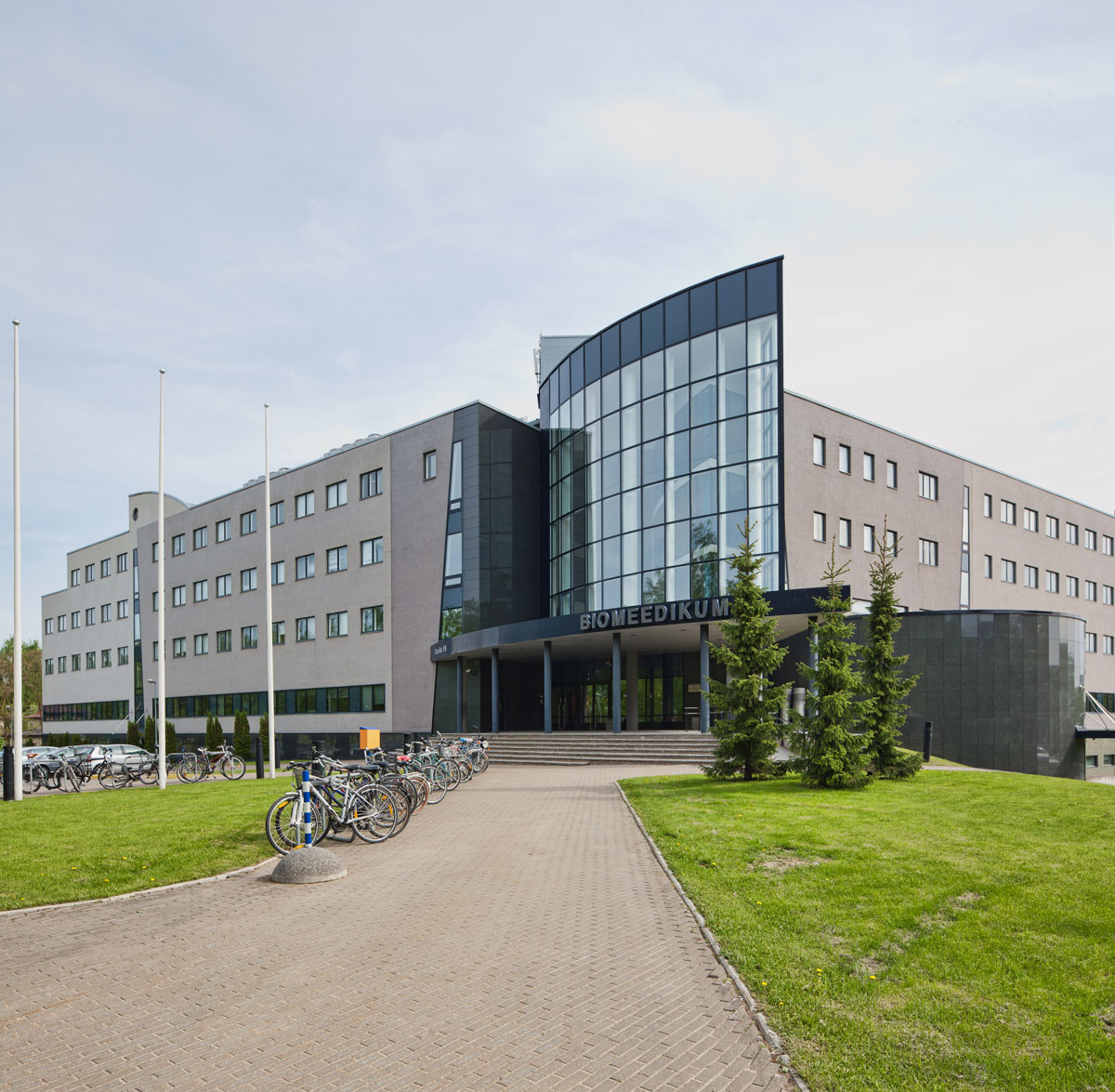 |
Founded in 1632, the University of Tartu is the oldest, largest university in Estonia in terms of both staff and student numbers, as well as the volume of its teaching, research and development activities. As a classical university, the university embraces a wide variety of academic fields, has 4 faculties, and offers 197 research-based graduate and postgraduate study programmes. As of 2020, approximately 13,300 students are studying, including around 1,600 international students. The University belongs to the 1,2% of the world’s best universities in university rankings.
| Department: Molecular Pathology E-Mail: part.peterson@ut.ee Website Lab: www.biomeditsiin.ut.ee/en/research-groups/molecular-pathology | 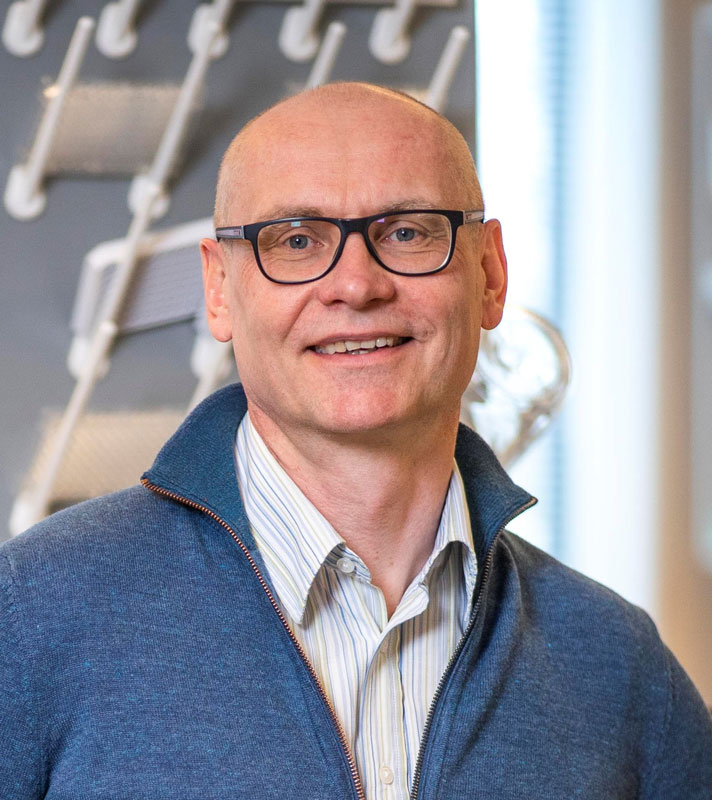 |
 Click for more information
Click for more informationCV
2011: Head of the Dept of Biomedicine, University of Tartu, Estonia
2003: Professor of Molecular Immunology, University of Tartu, Estonia
2009-2012: Professor of the Estonian Academy of Sciences
2003-2008: Senior International Fellow of The Wellcome Trust
2000-2003: Senior Scientist of the Finnish Academy, Finland
1991-2000: Research Fellow, University of Tampere, Finland
Additional information
2017 - Member of the Senate, University of Tartu
2016 - Board member of Estonian Society for Immunology and Allergology (EIAS)
2015 - Review Editor, Editorial Board, Frontiers in Immunology
2013 - Editorial Board Member, European Journal of Immunology
2011 - Editorial Board Member, Scandinavian Journal of Immunology
Keywords
- Epigenetic control of immune cell regulation
- Thymic central immune tolerance
- Age-related changes in immune system
Key publications
- Saare M, Tserel L, Haljasmägi L, Taalberg E, Peet N, Eimre M, Vetik R, Kingo K, Saks K, Tamm R, Milani L, Kisand K, Peterson P. Monocytes present age-related changes in phospholipid concentration and decreased energy metabolism. Aging Cell. 2020 19: e13127.
- Fishman D, Kisand K, Hertel C, Rothe M, Remm A, Pihlap M, Adler P, Vilo J, Peet A, Meloni A, Podkrajsek KT, Battelino T, Bruserud Ø, Wolff ASB, Husebye ES, Kluger N, Krohn K, Ranki A, Peterson H, Hayday A, Peterson P. Autoantibody Repertoire in APECED Patients Targets Two Distinct Subgroups of Proteins. Front Immunol. 2017 8: 976.
- Guha M, Saare M, Maslovskaja J, Kisand K, Liiv I, Haljasorg U, Tasa T, Metspalu A, Milani L, Peterson P. DNA breaks and chromatin structural changes enhance the transcription of autoimmune regulator target genes. J Biol Chem. 2017 292: 6542-6554.
- Haljasorg U, Dooley J, Laan M, Kisand K, Bichele R, Liston A, Peterson P. Irf4 Expression in Thymic Epithelium Is Critical for Thymic Regulatory T Cell Homeostasis. J Immunol. 2017 198: 1952-1960.
- Meyer S, Woodward M, Hertel C, Vlaicu P, Haque Y, Kärner J, Macagno A, Onuoha SC, Fishman D, Peterson H, Metsküla K, Uibo R, Jäntti K, Hokynar K, Wolff ASB; APECED patient collaborative, Krohn K, Ranki A, Peterson P, Kisand K, Hayday A. AIRE-Deficient Patients Harbor Unique High-Affinity Disease-Ameliorating Autoantibodies. Cell. 2016 166: 582-595.
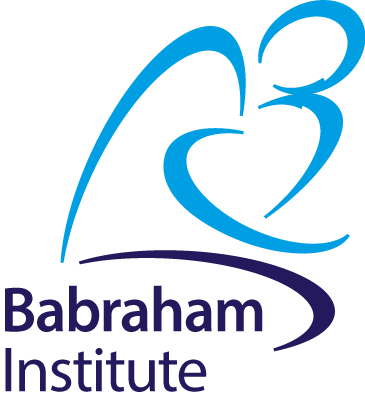 | Babraham Institute, Cambridge, UK |
| Short name: BI Website: www.babraham.ac.uk/ |  |
The Babraham Institute undertakes research into understanding the biology of how our bodies work, including what changes as we age and during disease. Our research is split into three programmes: Epigenetics, Signalling, and Lymphocyte Signalling, supported by strategic programme grants from the Biotechnology and Biological Sciences Research Council (BBSRC) and additional funding from research councils, the EU and charities.
| Department: Lymphocyte Signalling and Development E-Mail: michelle.linterman@babraham.ac.uk Website Lab: www.babraham.ac.uk/our-research/lymphocyte/michelle-linterman | 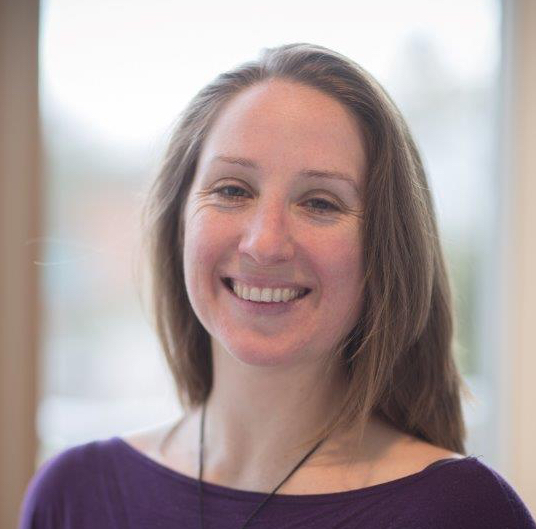 |
 Click for more information
Click for more informationCV
2013: Group Leader, Babraham Institute, UK
2013: College Lecturer in Biology, Churchill College, University of Cambridge, UK
2010-2013: Junior Research Fellow, Churchill College, University of Cambridge, UK
2009-2013: Post-doctoral scientist, University of Cambridge, UK
2006-2009: PhD. Australian National University, Canberra, Australia.
2005: Honours Degree (First class). Australian National University
2001-2004: BBmedSc. Victoria University, Wellington, New Zealand.
Additional information
2019-2024 - Lister Institute Prize Fellow
2017-2020 - EMBO Young Investigator
2010-2013 - Raymond & Beverly Sackler Junior Research Fellow
2010-2012 - NH&MRC Overseas Biomedical Fellow
2009-2010 - EMBO Long-Term Post-Doctoral Fellow
Keywords
- Follicular helper and regulatory T cells
- Germinal centre response
- Humans immune response to vaccination
- Respiratory infections
Key publications
- Silva-Cayetano A†, Foster WS†, Innocentin S†, Belij-Rammerstorfer S, Spencer AJ, Burton OT, Fra-Bidó S, Lee JL, Thakur N, Conceicao C, Wright D, Barett J, Evans-Bailey N, Noble C, Bailey D, Liston A, Gilbert SC, Lambe T*, Linterman MA*. A booster dose enhances immunogenicity of the COVID-19 vaccine candidate ChAdOx1 nCoV-19 in aged mice. Med. In press. *Joint senior authors, †Joint first authors.
- Stebegg M, Bignon A, Hill DL, Silva-Cayetano A, Krueger C, Vanderleyden I, Innocentin S, Boon L, Wang J, Zand MS, Dooley J, Clark J, Liston A, Carr E, Linterman MA. Rejuvenating conventional dendritic cells and T follicular helper cell formation after vaccination. Elife. 2020 Mar 24;9.
- Vanderleyden I, Fra-Bido S, Innocentin S, Stebegg M, Okkenhaug H, Evans-Bailey N, Pierson W, Denton AE, Linterman MA. Follicular regulatory T cells can access the germinal centre independently of CXCR5. Cell Reports, 2020 Jan 21, 30, 611–619.
- Hill DL†, Pierson W†, Bolland DJ, Mkindi C, Carr EJ, Wang J, Houard S, Wingett SW, Audran R, Wallin EF, Jongo SA, Kamaka K, Zand M, Spertini F, Daubenberger C, Corcoran AE and Linterman MA. The adjuvant GLA-SE promotes human Tfh cell expansion and emergence of public TCR clonotypes. J Exp Med. 2019 Aug 5;216(8):1857-1873. †Joint first authors.
- Denton AE, Innocentin S, Carr EJ, Bradford BM, Lafouresse F, Mabbott NA, Mörbe U, Ludewig B, Groom JR, Good-Jacobson KL, Linterman MA. Type I interferon induces CXCL13 to support ectopic germinal center formation. J Exp Med. 2019 Feb 5.
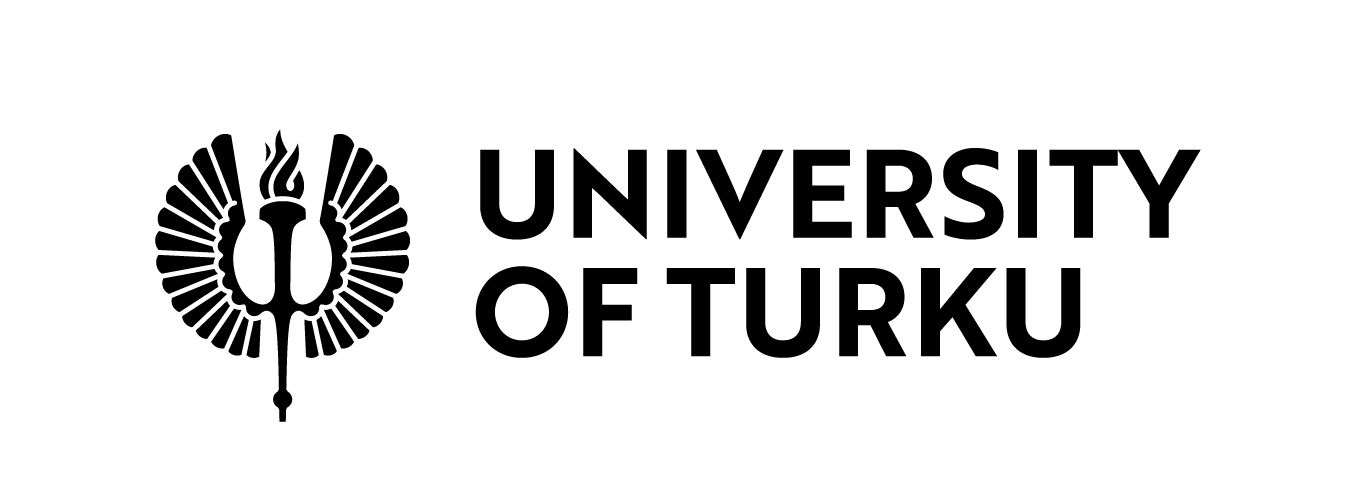 | University of Turku, Finland |
| Short name: UTU Website: www.utu.fi/en |  |
University of Turku (UTU) is an active academic community of 25 000 students and employees. It is an internationally competitive science university whose operations are based on high-quality multidisciplinary research. Turku Bioscience Centre is a joint department of University of Turku and Åbo Akademi University which provides high-end technologies and expertise to academic and industrial researchers. The focus is on discovering molecular events underlying biological function and identifying how this information can be used to improve life quality.
| Department: Turku Bioscience Centre and Institute of Biomedicine E-Mail: laura.elo@utu.fi Website Lab: elolab.utu.fi | 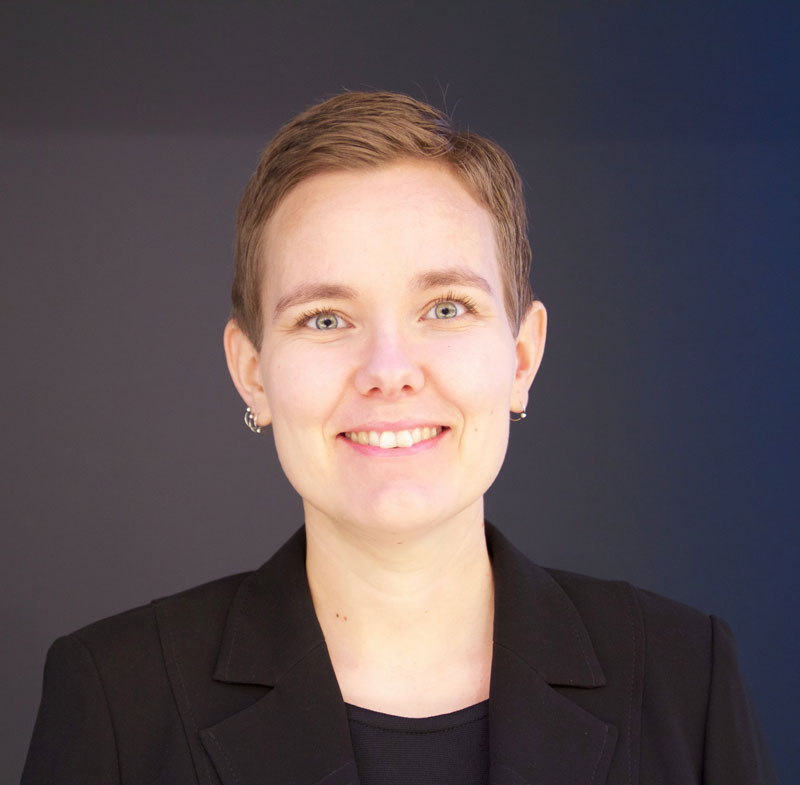 |
 Click for more information
Click for more informationCV
Since 2019: Full Professor of Computational Medicine, Faculty of Medicine, University of Turku, Finland
Since 2016: Vice Director of Turku Bioscience Centre, University of Turku and Åbo Akademi University, Finland
Since 2014: Research Director in Bioinformatics and Head of Turku Medical Bioinformatics Centre, University of Turku, Finland
2009 – 2013: Academy of Finland Postdoctoral fellow
2007: PhD in Applied Mathematics, Department of Mathematics, University of Turku, Finland
Additional information
Since 2019- Chair of the national Biocenter Finland Bioinformatics platform, Finland
2019- L’Oréal-UNESCO International Rising Talent Award
Since 2018 - Member of the ELIXIR Proteomics Community
Since 2018- Member of the Steering Group of the National Bioinformatics Infrastructure Sweden
Since 2018- Member of the Scientific Board of the Western Finland Cancer Centre FICAN West
2018- L’Oréal-UNESCO For Women in Science Award Finland
Since 2016 - Member of the Management Team of Turku Bioscience, Turku, Finland
Keywords
- Medical bioinformatics (genomics, transcriptomics, epigenomics, proteomics, single cells)
- Development of bioinformatics tools
- Statistical and machine learning to predict individualized disease and treatment risks
Key publications
- Smolander J, Junttila S, Venäläinen MS, Elo LL. ILoReg: a tool for high-resolution cell population identification from single-cell RNA-seq data. To appear in Bioinformatics.
- Välikangas T, Suomi T, Elo LL. A comprehensive evaluation of popular proteomics software workflows for label-free proteome quantification and imputation. Brief Bioinform 19(6):1344-1355, 2018.
- Lietzen N, An LTT, Jaakkola MK, Kallionpää H, Oikarinen S, Mykkänen J, Knip M, Veijola R, Ilonen J, Toppari J, Hyöty H, Lahesmaa R, Elo LL. Enterovirus-Associated Changes in Blood Transcriptomic Profiles of Children with Genetic Susceptibility to Type 1 Diabetes. Diabetologia 61(2):381-388, 2018.
- Seyednasrollah F, Mahmoudian M, Rautakorpi L, Hirvonen O, Laitinen T, Jyrkkiö S, Elo LL. How reliable are trial-based prognostic models in real-world patients with metastatic castration resistant prostate cancer? Eur Urol 71(5):838-840, 2017.
- Seyednasrollah F, Rantanen K, Jaakkola P, Elo LL. ROTS: reproducible RNA-seq biomarker detector – prognostic markers for clear cell renal cell cancer. Nucleic Acids Res 44(1):e1, 2016.
 | IBM Research Europe, Rüschlikon, Switzerland |
| Short name: IBM Website: www.zurich.ibm.com |  |
IBM Research is world-renown for its outstanding scientific achievements -- most notably Nobel Prizes in Physics in 1986 and 1987 for the invention of the scanning tunnelling microscope and the discovery of high-temperature superconductivity, respectively. Other key innovations include FORTRAN, magnetic desk storage, DRAM, relational databases, Deep Blue, Racetrack Memory, speech recognition, RISC architecture, excimer laser surgery and most recently Watson.
IBM Research is dedicated not only to fundamental research, but also to exploring and creating innovative industry and customer-oriented solutions based on several key areas including; future chip technology; smarter planet; nanotechnology; storage; supercomputing; security and privacy; risk and compliance as well as business optimization and transformation.
The group of Systems Biology at IBM Research in Zurich was founded 7 years ago with Dr. Rodríguez Martínez as technical leader. One of its primary goals is the development of new methodological approaches for the analysis and exploitation of last generation bio-medical technologies. In the context of cancer, the group is actively involved in the development of new methodologies for personalised medicine exploiting multi-omics datasets and state-of-the-art approaches in machine learning and deep learning.
| Department: Cognitive and Industry Solutions E-Mail: mrm@zurich.ibm.com Website Lab: www.zurich.ibm.com/compsysbio/ | 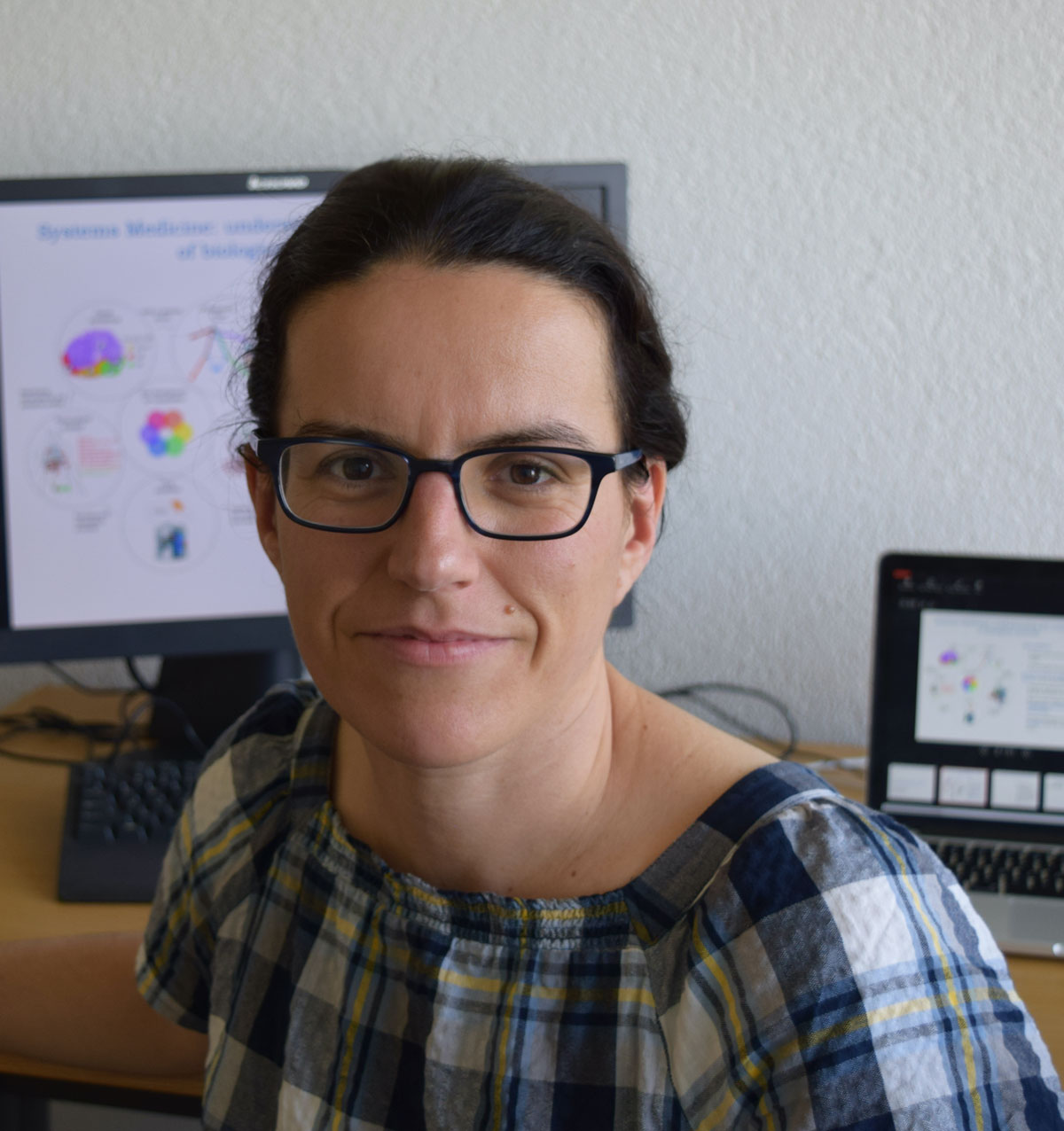 |
 Click for more information
Click for more informationCV
2015-: Technical Lead of Systems Biology, IBM, Zurich Research Laboratory
2014-: Associated member, ETH Zurich, Department of biology
2013-: Research Staff Member
2011-2013: Associate Research Scientist, Systems Biology, Columbia University
2009-2011: Postdoctoral Research Scientist, Systems Biology, Columbia University
2006-2008: Postdoctoral Researcher, Systems Biology, Weizmann Institute of Science
2004-2006: Postdoctoral Researcher, Racah Inst. of Physics, Hebrew Univ. of Jerusalem
2001-2003: PhD in Physics, Gravitation and Cosmology Group, Inst. d'Astrophysique de Paris
Additional information
Since 2019- Scientific Leader of EU-funded ‘iPC: Individualized Paediatric Cure’
2015-19- Scientific Leader of EU-funded ‘PrECISE: a Personalized Engine for Cancer Integrative Study and Evaluation
2021- Program Committee of International Conference on Computational Methods in Systems Biology
2020- Program Committee of Workshop on Conceptual Modeling for Life Sciences, 2020.
Since 2017- Organizing Committee of Computational Modeling of Biological Systems (SysMod)
Keywords
- Single-cell technologies
- Multi-omics approaches in systems medicine
- Quantitative models of the adaptive immune response
- Machine and deep learning approaches for cancer personalized medicine
Key publications
- Towards Explainable Anticancer Compound Sensitivity Prediction via Multimodal Attention-based Convolutional Encoders. Matteo Manica, Ali Oskooei, Jannis Born, Vigneshwari Subramanian, Julio Sáez-Rodríguez, María Rodríguez Martínez. Molecular Pharmaceutics, 2019. https://pubs.acs.org/doi/10.1021/acs.molpharmaceut.9b00520
- Computational model reveals a stochastic mechanis behind germinal center clonal bursts. Aurélien Pélissier, Youcef Akrout, Katharina Jahn, Jack Kuipers, Ulf Klein, Niko Beerenwinkel, María Rodríguez Martínez. Cells, 2020. https://www.mdpi.com/2073-4409/9/6/1448
- A single-cell atlas of tumor and immune cell heterogeneity in human breast cancer. Johanna Wagner, Maria Anna Rapsomaniki, Stéphane Chevrier, Tobias Anzeneder, Claus Langwieder, August Dykgers, Martin Rees, Annette Ramaswamy, Simone Münst Soysal, Savas D. Soysal, Andrea Jacobs, Konstantin Dedes, María Rodríguez Martínez*, Walter P. Weber*, and Bernd Bodenmiller. Cell, 11 April (2019). https://doi.org/10.1016/j.cell.2019.03.005
- CellCycleTRACER accounts for cell cycle and volume in mass cytometry data. Marianna Rapsomaniki*, Xiaokang Lun*, Stefan Woerner, Marco Laumanns, Bernd Bodenmiller* & María Rodríguez Martínez*. Nature Communications, 2018. https://www.nature.com/articles/s41467-018-03005-5
- Quantitative modeling of the terminal differentiation of B cells and mechanisms of lymphomagenesis. María Rodríguez Martínez, Alberto Corradin, Ulf Klein, Mariano Alvarez, Gianna Toffolo, Barbara Di Camillo, Andrea Califano & Gustavo Stolovitzky. PNAS, 2012. https://www.pnas.org/content/109/7/2672
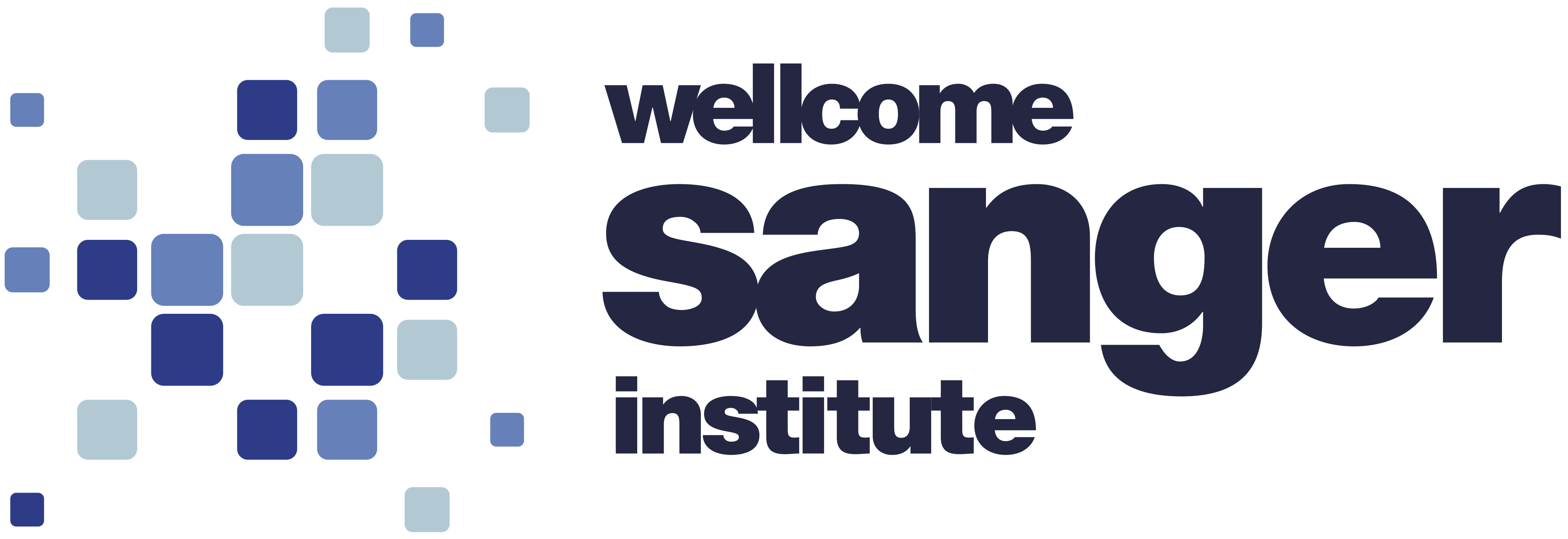 | Wellcome Sanger Institute, Cambridge, UK |
| Short name: WSI Website: www.sanger.ac.uk | 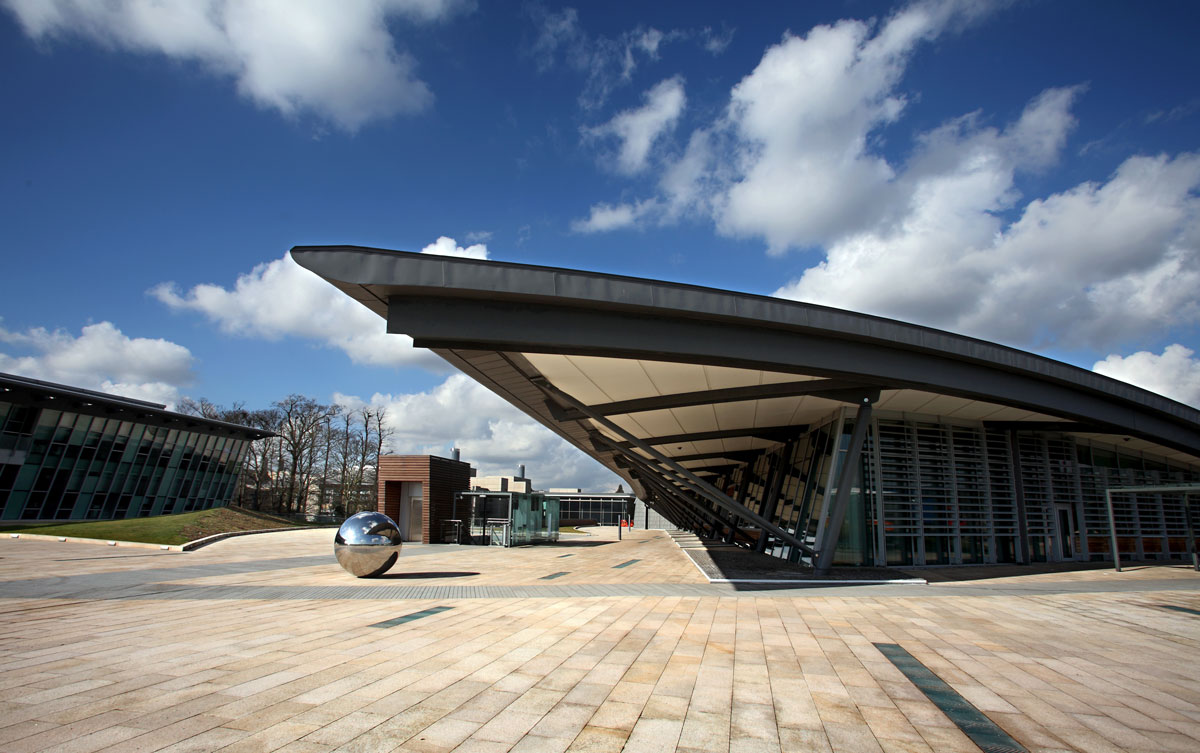 |
The Wellcome Sanger Institute is one of the premier centres of genomic discovery and understanding in the world. It leads ambitious collaborations across the globe to provide the foundations for further research and transformative healthcare innovations. Its success is founded on the expertise and knowledge of its people and the Institute seeks to share its discoveries and techniques with the next generation of genomics scientists and researchers worldwide.
| Department: Cellular Genetics E-Mail: st9@sanger.ac.uk Website Lab: www.teichlab.org | 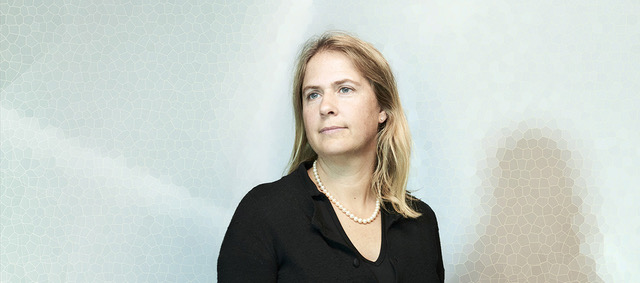 |
 Click for more information
Click for more informationCV
Since 2016: Head of Cellular Genetics, Wellcome Sanger Institute
Since 2016: Senior Research Fellow, Churchill College
Since 2015: Director of Research, Cavendish Laboratory/Physics Dept., Cambridge University
2013 – 2016: Research Group Leader at EMBL-European Bioinformatics Institute & Senior Group Leader at the Wellcome Sanger Institute
2013 – 2015: Principal Research Associate, Cavendish Laboratory/Physics Dept., Cambridge University
2005 – 2015: Title C Fellow, Trinity College, Cambridge
2006 – 2013: MRC Programme Leader at the MRC Laboratory of Molecular Biology
2001 – 2005: MRC Career Track Programme Leader at the MRC Laboratory of Molecular Biology, Cambridge, UK & Research Fellow of Trinity College, Cambridge
2000 – 2001: Postdoctoral research with Prof Dame J Thornton CBE FRS FMedSci at University College London on a Beit Memorial Fellowship
1999 – 2005: Trinity College Research Fellowship
Additional information
2020- Biochemical Society GlaxoSmithKline Award
2020- Fellow, Royal Society
2018- Genetics Society Mary Lyons Award
2017- Helmholtz International Fellow Award
2016- Senior Research Fellow, Churchill College
2016- Fellow, Intl Society of Computational Biology
2015- EMBO Gold Medal
2015- Fellow, Academy of Medical Sciences
2014- Baranyi Award, Biophysical Society, USA
2012- Crick Lecture of the Royal Society
2012- EMBO member
2011- Colworth Medal of the Biochemical Society
2010- Lister Research Prize
2009- Shell Science & Technology Woman of the Future
2005 – 2015- Fellowship, Trinity College
2003 – 2006- EMBO Young Investigator
Keywords
- Genomics
- bioinformatics
- immunology
- T helper cells
- thymus
Key publications
- Campinoti S, Gjinovci A, Ragazzini R, Zanieri L, Ariza-McNaughton L, Catucci M, Boeing S, Park JE, Hutchinson JC, Muñoz-Ruiz M, Manti PG, Vozza G, Villa CE, Phylactopoulos DE, Maurer M, Testa G, Stauss HJ, Teichmann SA, Sebire NJ, Hayday AC, Bonnet D, Bonfanti P. Reconstitution of a functional human thymus by postnatal stromal progenitor cells and natural whole-organ scaffolds. Nat Commun 2020; 11:1-16
- Park J-E, Botting RA, Conde CD, Popescu D-M, Lavaert M, Kunz DJ, Stephenson E, Ragazzini R, Tuck E, Wilbrey-Clark A, Ferdinand JR, Webb S, Maunder D, Vandamme N, Mahbubani K, Polanski K, Mamanova L, Fuller A, Filby A, Reynolds G, Dixon D, Saeb-Parsy K, Lisgo S, Henderson D, Vento-Tormo R, Meyer KB, Saeys Y, Bonfanti P, Behjati S, Clatworthy MR, Taghon T, Haniffa M, Teichmann SA. A cell atlas of human thymic development defines T cell repertoire formation. Science 2020; 367:6480
- Soon MSF, Lee HJ, Engel JA, Straube J, Thomas BS, Pernold CPS, Clarke LS, Laohamonthonkul P, Haldar RN, Williams CG, Lansink LIM, Moreira ML, Bramhall M, Koufariotis LT, Wood S, Chen X, James KR, Lönnberg T, Lane SW, Belz GT, Engwerda CR, Khoury DS, Davenport MP, Svensson V, Teichmann SA, Haque A. Transcriptome dynamics of CD4+ T cells during malaria maps gradual transit from effector to memory. Nat Immunol 2020; 21:1597-1610
- Mahata B, Pramanik J, van der Weyden L, Polanski K, Kar G, Riedel A, Chen X, Fonseca NA, Kundu K, Campos LS, Ryder E, Duddy G, Walczak I, Okkenhaug K, Adams DJ, Shields JD, Teichmann SA. Tumors induce de novo steroid biosynthesis in T cells to evade immunity. Nat Commun 2020; 11:1-15
- Davidson S, Efremova M, Riedel A, Mahata B, Pramanik J, Huuhtanen J, Kar G, Vento-Tormo R, Hagai T, Chen X, Haniffa MA, Shields JD, Teichmann SA. Single-Cell RNA Sequencing Reveals a Dynamic Stromal Niche That Supports Tumor Growth. Cell Reports 2020; 31:107628
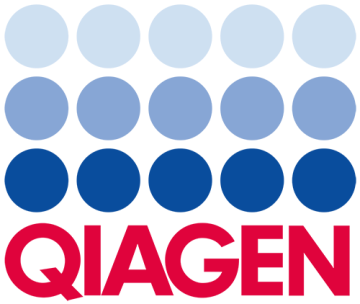 | QIAGEN Aarhus A/S, Aarhus, Denmark |
| Short name: QIAAR Website: digitalinsights.qiagen.com |  |
QIAAR is the worlds leading software provider within software for Next Generation Sequencing data analysis. QIAAR has 80 employees and has over 2,000 academic and industrial organisations on the customer list, including all Top10 Big Pharma and agricultural companies. 65% of QIAAR sales volume is exported out of EU. QIAAR is part of QIAGEN which is a multinational company employing a total of 4500 people. QIAGEN develops and produce technologies for a wide range of molecular biology analysis where QIAAR is a key part of nucleic acid based diagnostic value chains. All QIAAR product development is carried out in Denmark by a team of more than 60 bioinformaticians, computer scientists, and usability experts. QIAAR is a knowledge- and research intensive company with a third of the company having a Ph.D. degree, and two thirds of the remainder having a Master level education.
| Department: QIAGEN Aarhus E-Mail: Leif.Schauser@qiagen.com Website Lab: digitalinsights.qiagen.com | 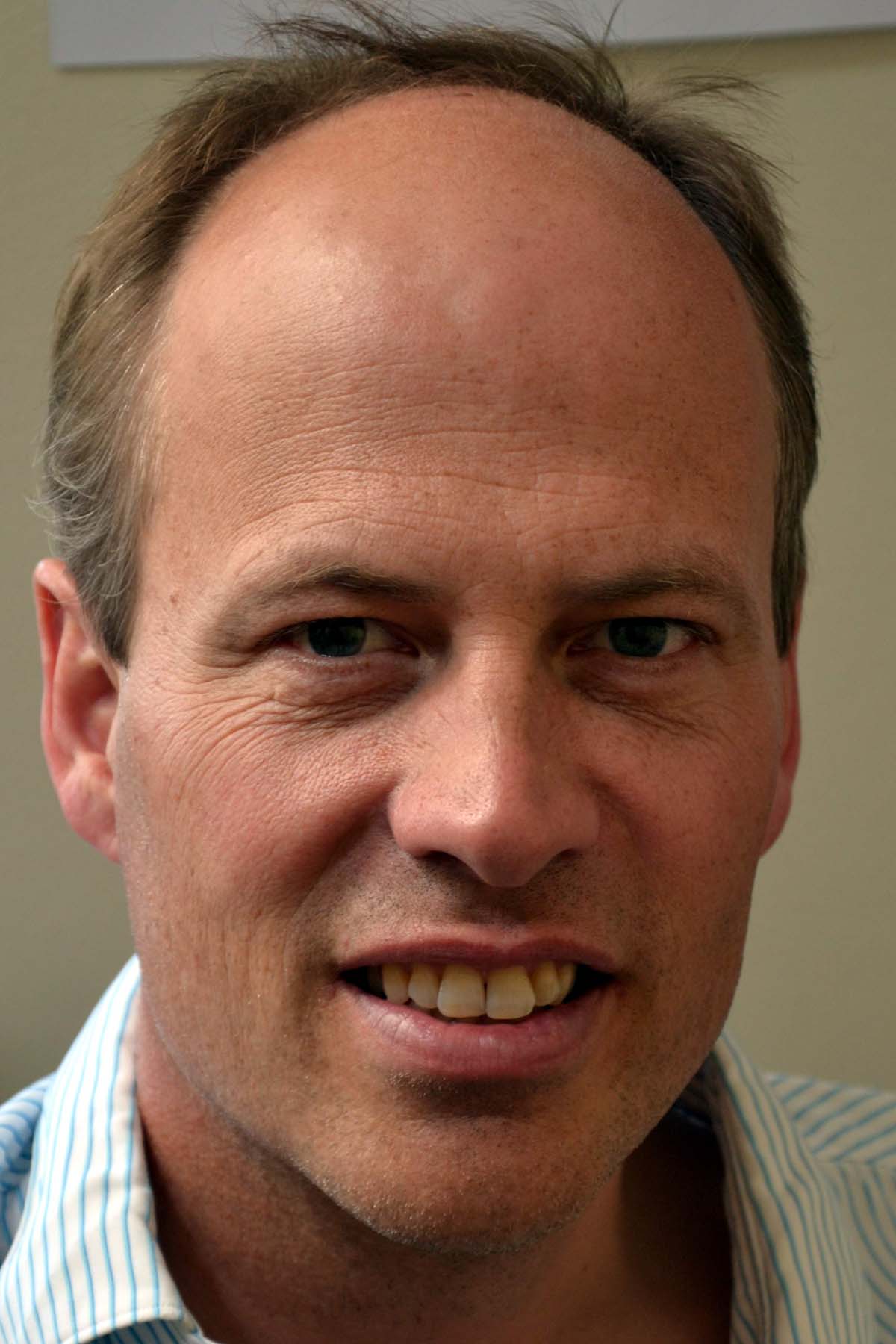 |
 Click for more information
Click for more informationCV
Since 2018: Global Product Managment, QIAGEN Aarhus A/S
Since 2016: Lead Bioinformtician, QIAGEN Aarhus A/S
Since 2013: Senior Bioinformatics Scientist, QIAGEN Aarhus A/S
2007 – 2013: Scientific coordinator, Interdisciplinary Nanoscience Center, Aarhus University
2001 – 2007: Associate Professor, Bioinformatics Research Center, Aarhus University
1998 – 1999: Assistant Professor, Institute of Molecular and Structural biology, Aarhus University
Additional information
Keywords
- Bioinformatics
- Metagenomics
- Single Cell analysis
- AI/ML
Key publications
- Almeida L et al. (2020) Ribosome-targeting antibiotics impair T cell effector function and ameliorate autoimmunity by blocking mitochondrial protein synthesis. Immunity
- Sanggaard KW et al.. (2014) Wang J. Spider genomes provide insight into composition function and evolution of venom and silk. Nature Communications 5, 3765
- Fredslund J et al (2006) GeMprospector--online design of cross-species genetic marker candidates in legumes and grasses Nucleic Acids Res. 34:W670-5.
- Mailund T, Schierup MH, Pedersen CN, Madsen JN, Hein J, Schauser L. (2006) GeneRecon--a coalescent based tool for fine-scale association mapping. Bioinformatics 22:2317-8.
- Schauser L. et al. (1999) A plant regulator controlling the development of symbiotic root nodules. Nature 401: 191- 195.
 | Radboud University Medical Center, Nijmegen, The Netherlands |
| Short name: RAD Website: www.radboudumc.nl/en | 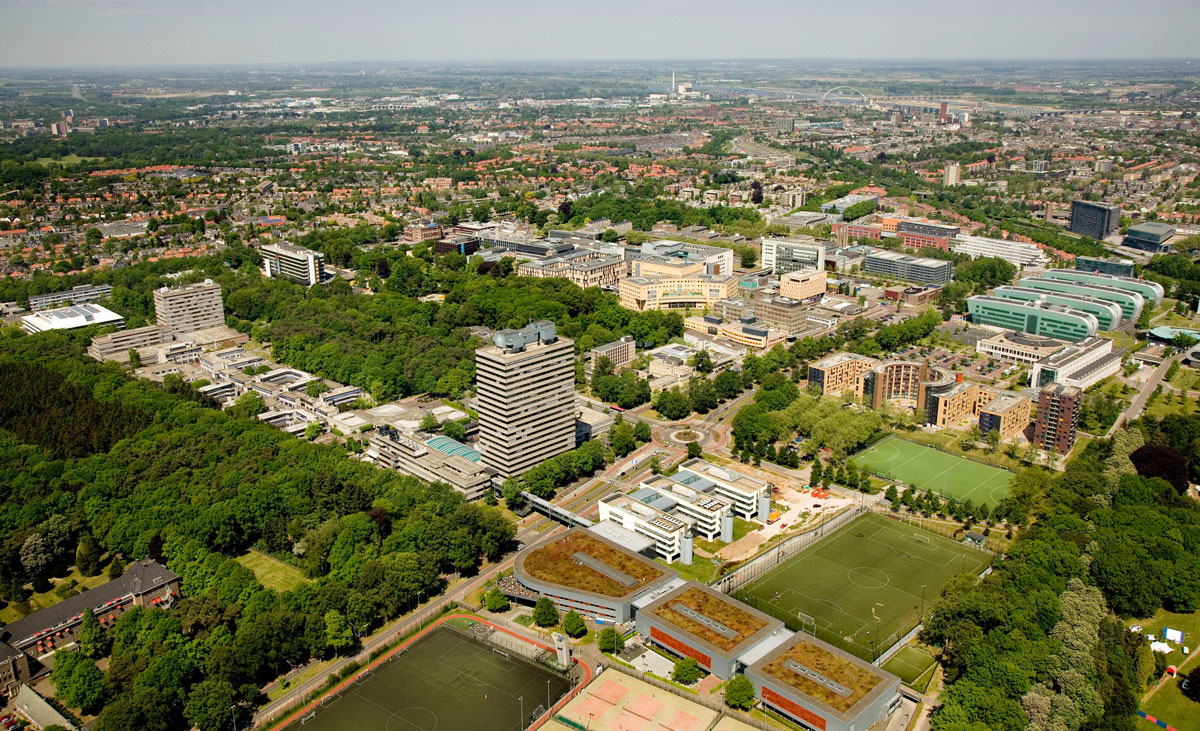 |
Radboudumc is one of the largest and leading hospitals of The Netherlands. It has created a distinctive research environment by establishing personalized healthcare-oriented research themes, by providing translational research for patients and cutting-edge infrastructure, and by hosting world-class scientists.
| Department: Computational Biology for Individualised Medicine E-Mail: yang.li@radboudumc.nl Website Lab: www.radboudumc.nl/en/people/mihai-netea | 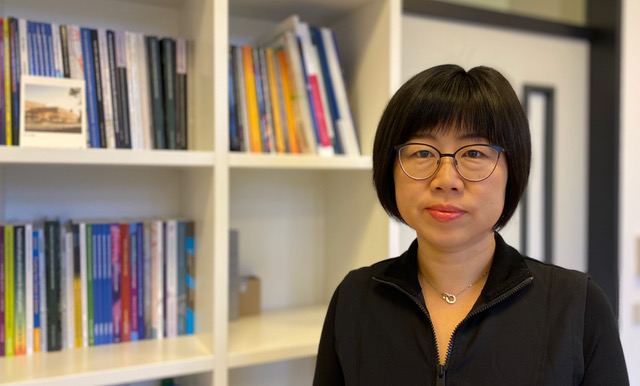 |
 Click for more information
Click for more informationCV
Since 2020: Associated Professor, Department of Internal Medicine, Radboud University Medical Center, Nijmegen, The Netherlands
Since 2019: Professor of Computational Biology, Director of Centre for Individualised Infection Medicine, Head of Department of Computational Biology for Individualized Medicine, Centre for Individualised Infection Medicine, Hannover, Germany
2019 – 2020: Principal Investigator, Hypatia Tenure Track Assistant Professor, Department of Internal Medicine, Radboud University Medical Center, Nijmegen, The Netherlands
2013 - 2019: Principal Investigator, Assistant Professor, Department of Genetics, University Medical Centre Groningen, University of Groningen, Groningen, The Netherlands
2010 - 2013: Postdoc, Groningen Bioinformatics Centre (GBiC), University of Groningen, Groningen, The Netherlands
Additional information
2020- ERC starting grant award
2019- NL-NWO Aspasia personal grant
2016- NL-ZonMw OffRoad personal grant
2014- Qingtian Award for Outstanding Chinese researcher in The Netherlands
2013- NL-NWO Veni personal grant
2011- Dutch Bioinformatics Young Investigator Award, The Netherlands
Keywords
- Single cell genomics in immune-related diseases
- Integration of multi-omics data for understanding the disease mechanisms
- Genetic regulation of molecular and immune phenotypes
- Development of computational methods for predicting disease status
Key publications
- Schulte-Schrepping, J., Reusch, N., Paclik, D., Baßler, K., Schlickeiser, S., Zhang, B., Krämer, B., Krammer, T., Brumhard, S., Bonaguro, L., De Domenico, E., Wendisch, D., Grasshoff, M., Kapellos, T. S., Beckstette, M., Pecht, T., Saglam, A., Dietrich, O., Mei, H. E., Schulz, A. R., Conrad, C., Kunkel, D., Vafadarnejad, E., Xu, C.-J., Horne, A., Herbert, M., Drews, A., Thibeault, C., Pfeiffer, M., Hippenstiel, S., Hocke, A., Müller-Redetzky, H., Heim, K.-M., Machleidt, F., Uhrig, A., Bosquillon de Jarcy, L., Jürgens, L., Stegemann, M., Glösenkamp, C. R., Volk, H.-D., Goffinet, C., Landthaler, M., Wyler, E., Georg, P., Schneider, M., Dang-Heine, C., Neuwinger, N., Kappert, K., Tauber, R., Corman, V., Raabe, J., Kaiser, K. M., Vinh, M. T., Rieke, G., Meisel, C., Ulas, T., Becker, M., Geffers, R., Witzenrath, M., Drosten, C., Suttorp, N., von Kalle, C., Kurth, F., Händler, K., Schultze, J. L. #, Aschenbrenner#, A. C., Li, Y. #, Nattermann, J. #, Sawitzki, B. #, Saliba, A.-E. #, Sander, L. E. #, Severe COVID-19 Is Marked by a Dysregulated Myeloid Cell Compartment. Cell (2020). doi:10.1016/j.cell.2020.08.001
- Bakker, O.B., Aguirre-Gamboa, R., Sanna, S., Oosting, M., Smeekens, S.P., Jaeger, M., Zorro, M., Võsa, U., Withoff, S., Netea-Maier, R.T., Koenen, H.J.P.M., Joosten, I., Xavier, R.J., Franke, L., Joosten, L.A.B., Kumar, V., Wijmenga, C.#, Netea, M.G#, Li, Y.# Integration of multi-omics datasets and deep phenotyping enables prediction of cytokine production in response to pathogens. Nature Immunology 2018(19):776–786. (IF 22)
- Li, Y.#, Oosting, M., Smeekens, S.P., Jaeger, M., Aguirre-Gamboa, R., Le, K.T.T., Deelen, P., Ricaño-Ponce, I., Schoffelen, T., Jansen, A.F.M., Swertz, M.A., Withoff, S., van de Vosse, E., van Deuren, M., van de Veerdonk, F., Zhernakova, A., van der Meer, J.W.M., Xavier, R.J., Franke, L., Joosten, L.A.B.#, Wijmenga, C.#, Kumar, V.#, Netea, M.G#A Functional Genomics Approach to Understand Variation in Cytokine Production in Humans. Cell 2016(167):1099–1110.e14. doi:10.1016/j.cell.2016.10.017 (IF 30).
- Aguirre-Gamboa, R., Joosten, I., Urbano, P.C.M., van der Molen, R.G., van Rijssen, E., van Cranenbroek, B., Oosting, M., Smeekens, S., Jaeger, M., Zorro, M., Withoff, S., van Herwaarden, A.E., Sweep, F.C.G.J., Netea, R.T., Swertz, M.A., Franke, L., Xavier, R.J., Joosten, L.A.B., Netea, M.G., Wijmenga, C., Kumar, V., Li, Y#, Koenen, H.J.P.M.# Differential Effects of Environmental and Genetic Factors on T and B Cell Immune Traits. Cell Reports 2016,
- Li, Y.*, Oosting, M.*, Deelen, P., Ricaño-Ponce, I., Smeekens, S., Jaeger, M., Matzaraki, V., Swertz, M.A., Xavier, R.J., Franke, L., Wijmenga, C., Joosten, L.A.B., Kumar, V., Netea, M.G. Inter-individual variability and genetic influences on cytokine responses to bacteria and fungi. Nature Med. 2016(22)952–960.

